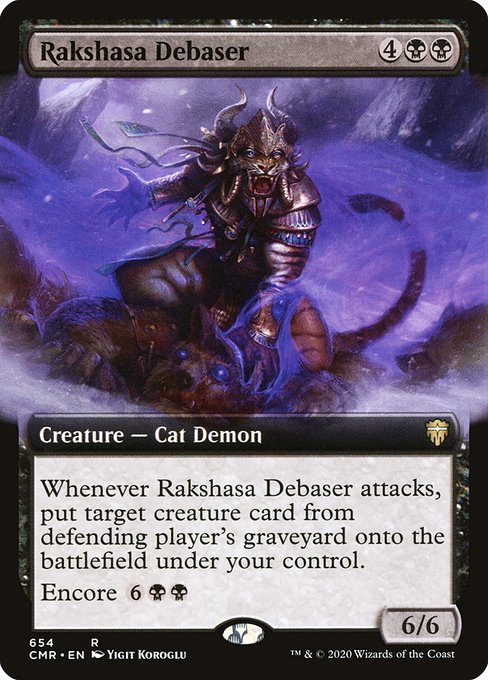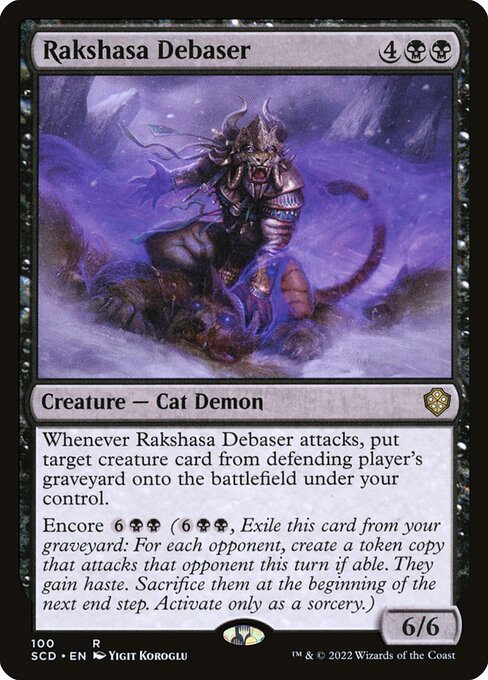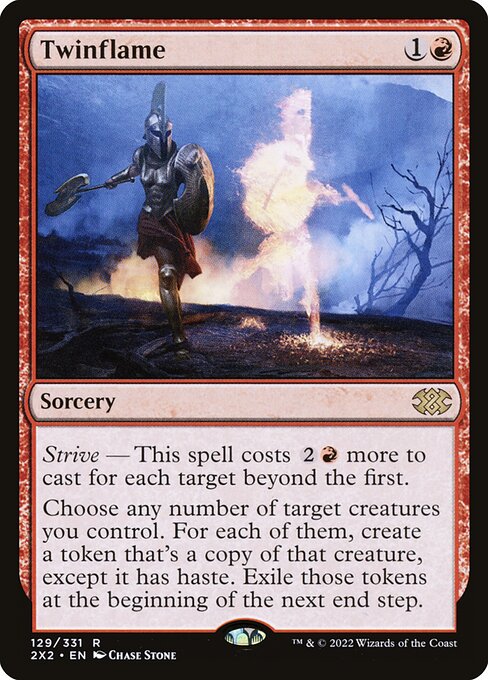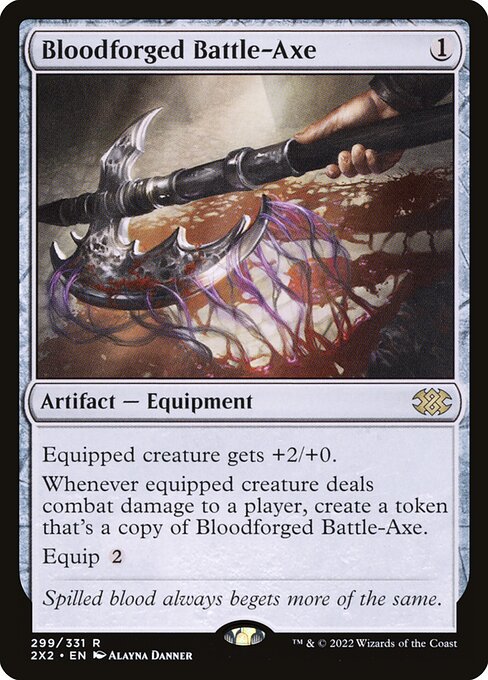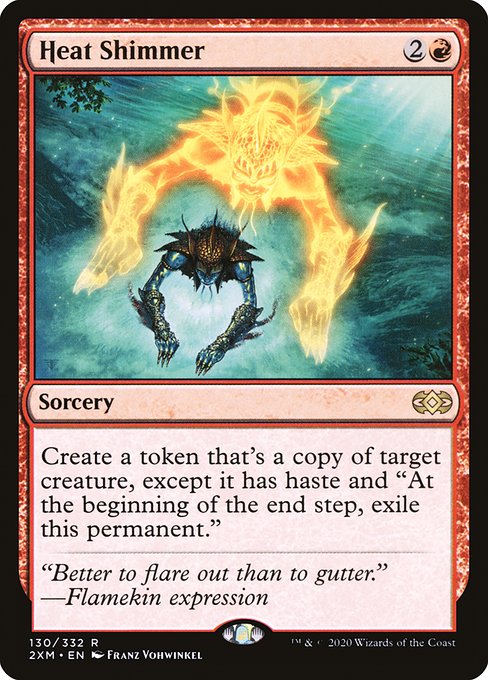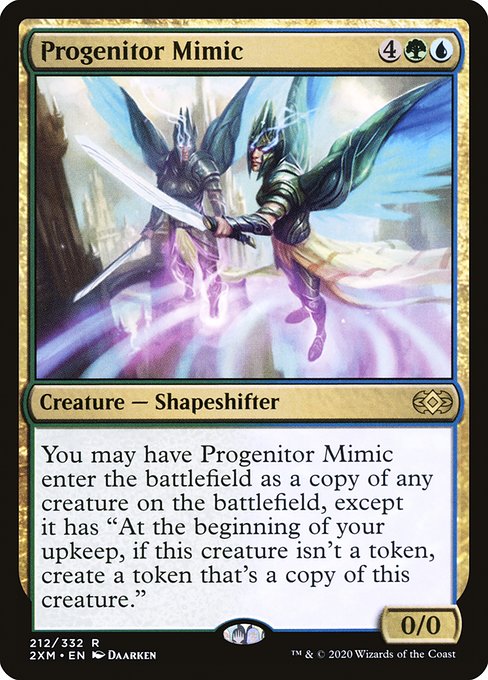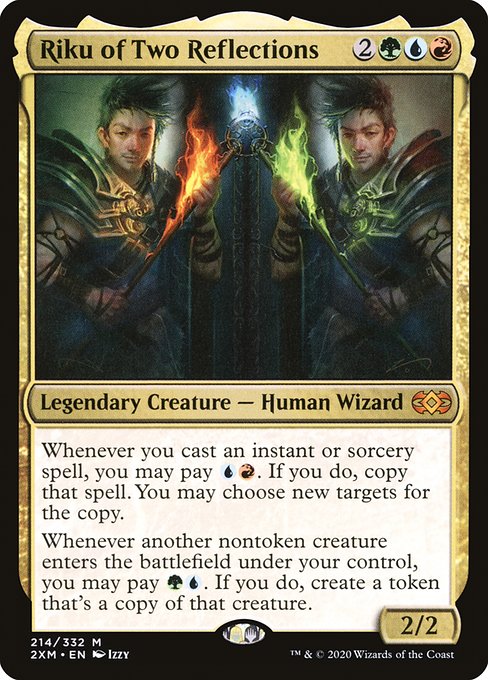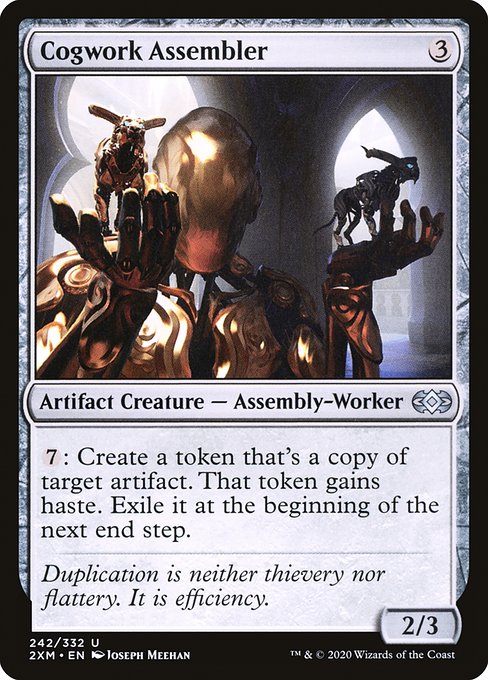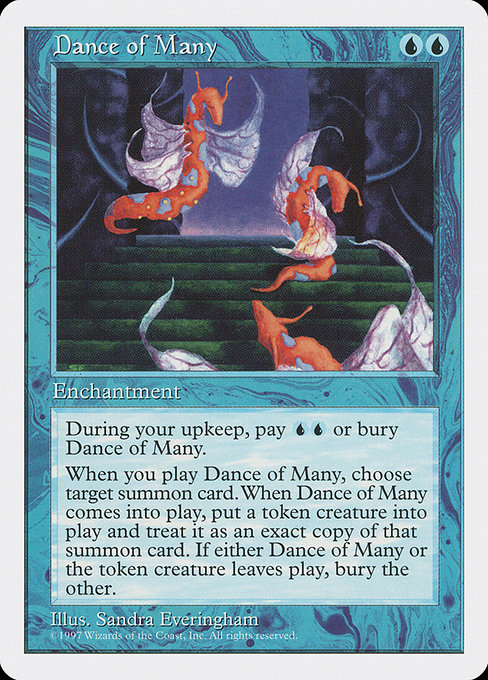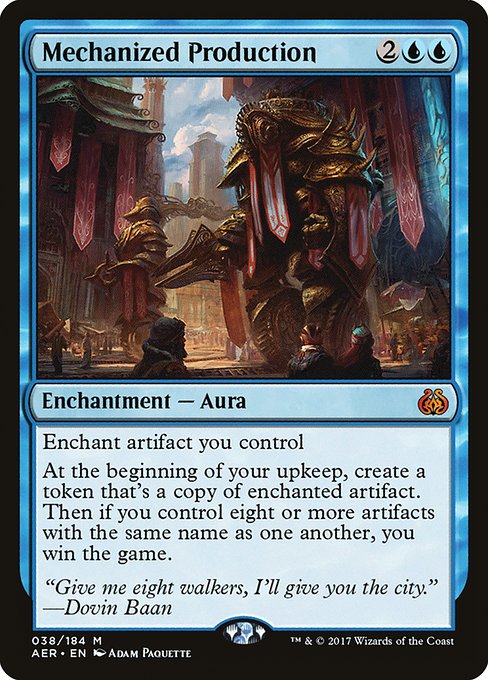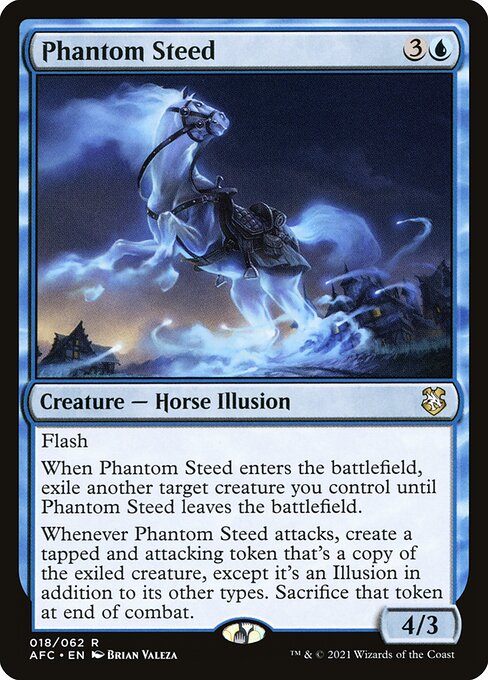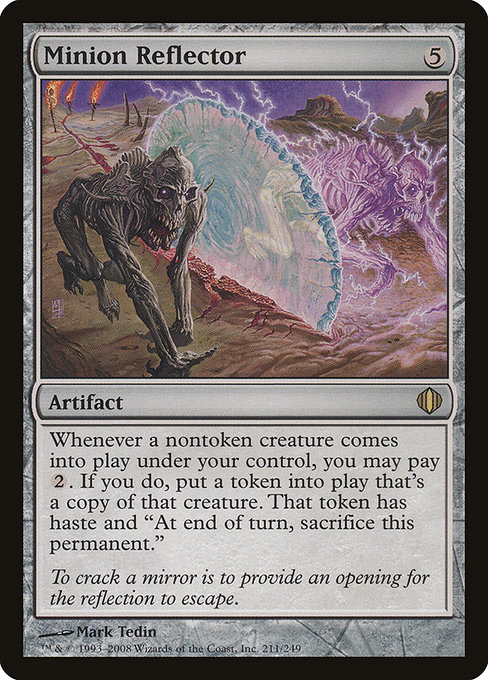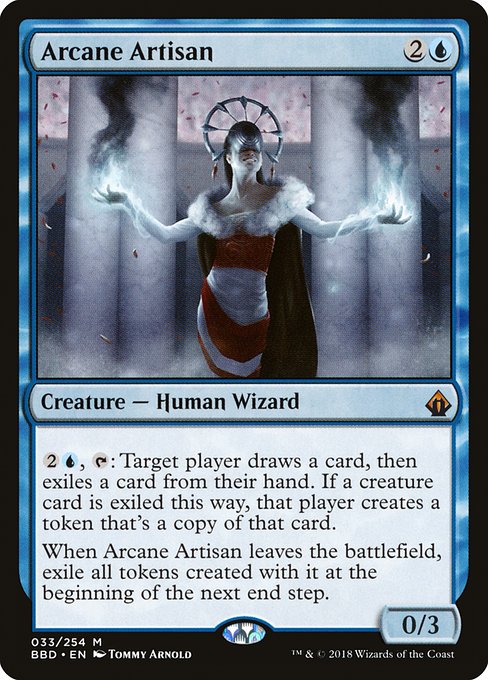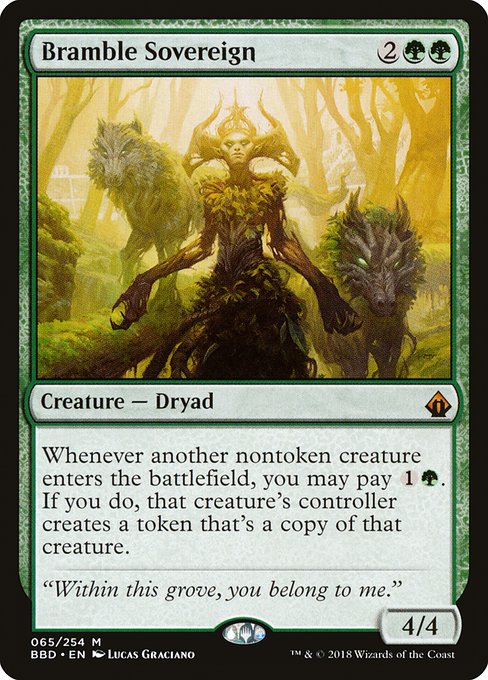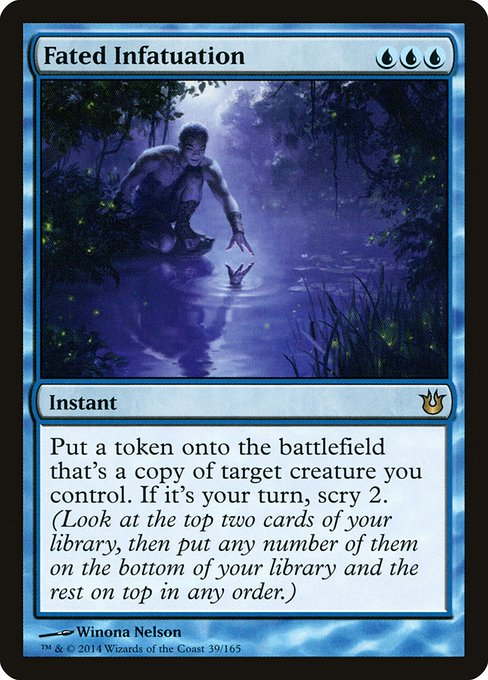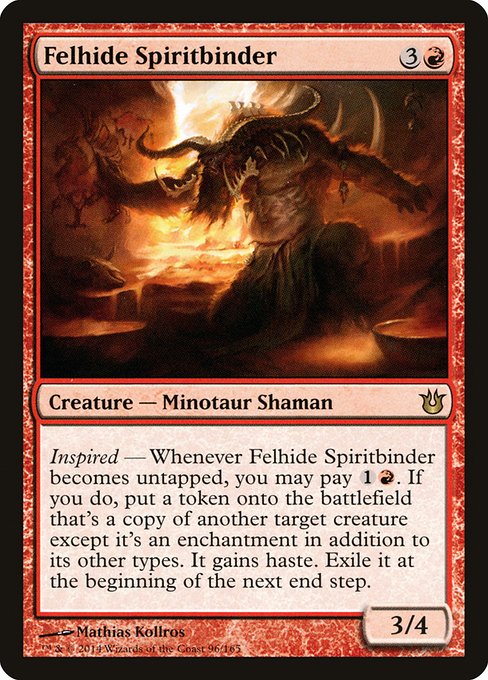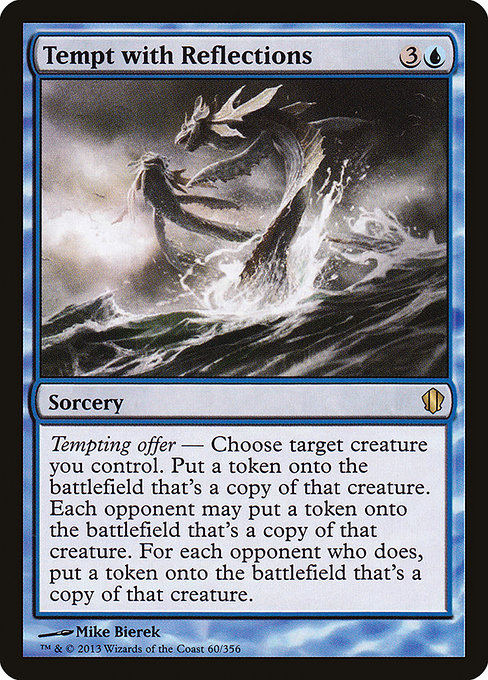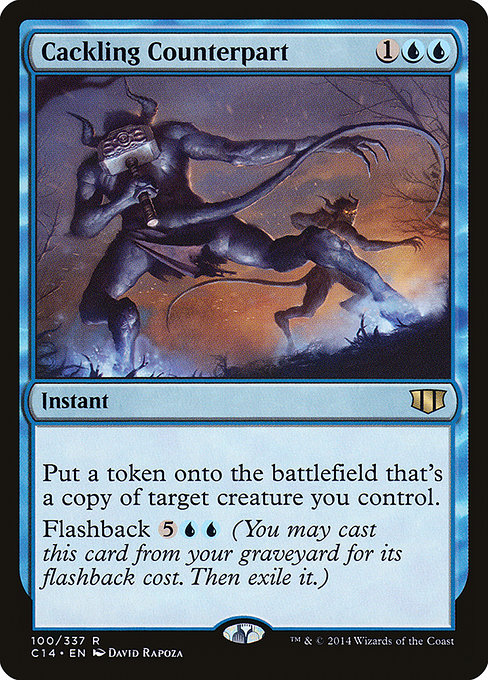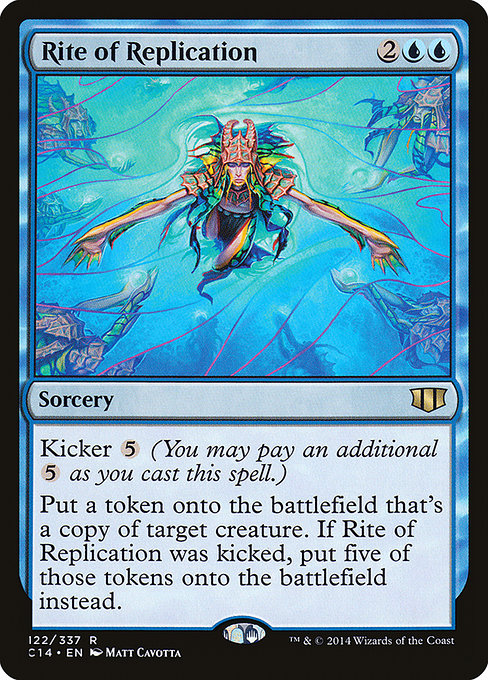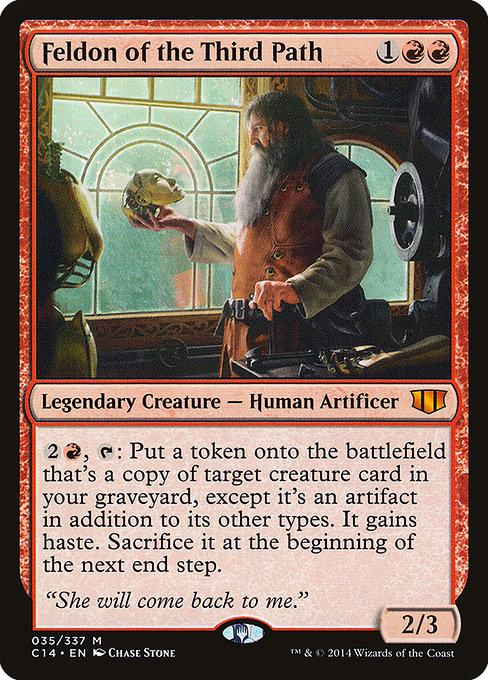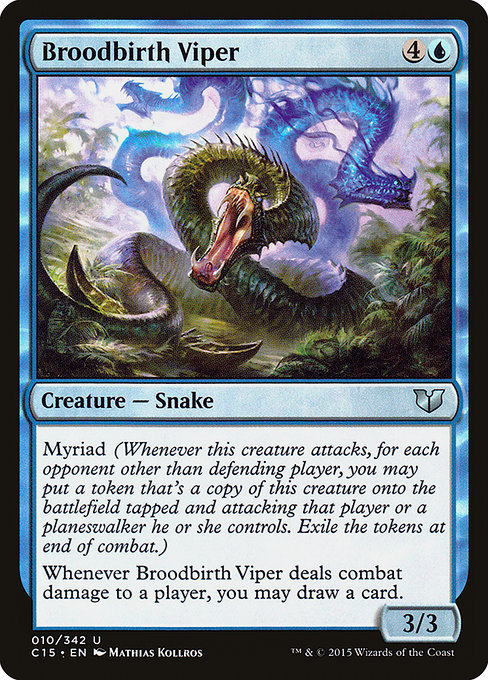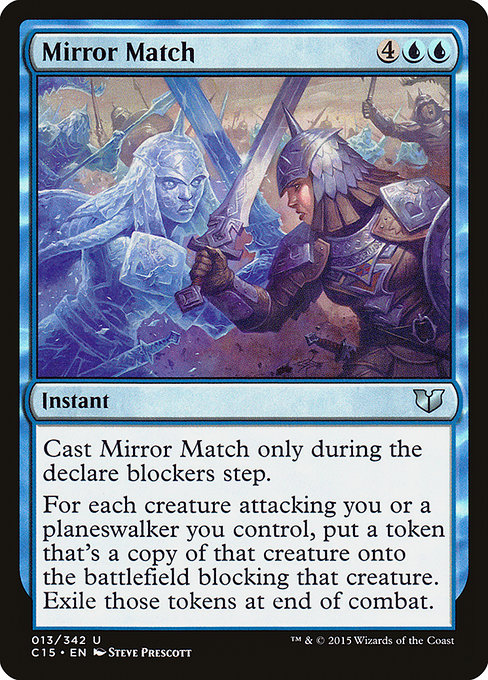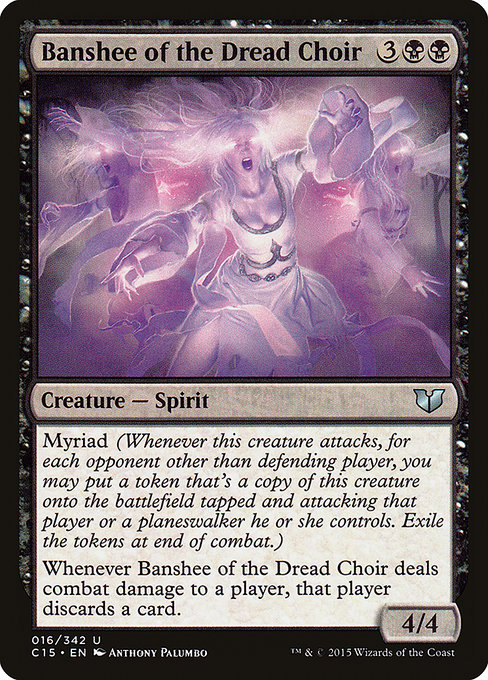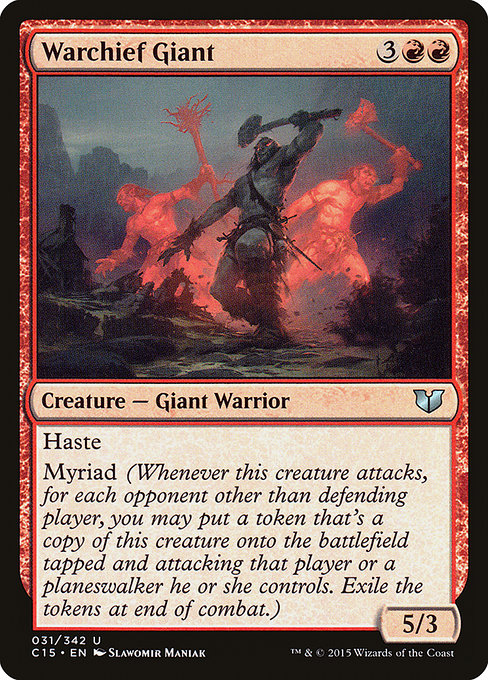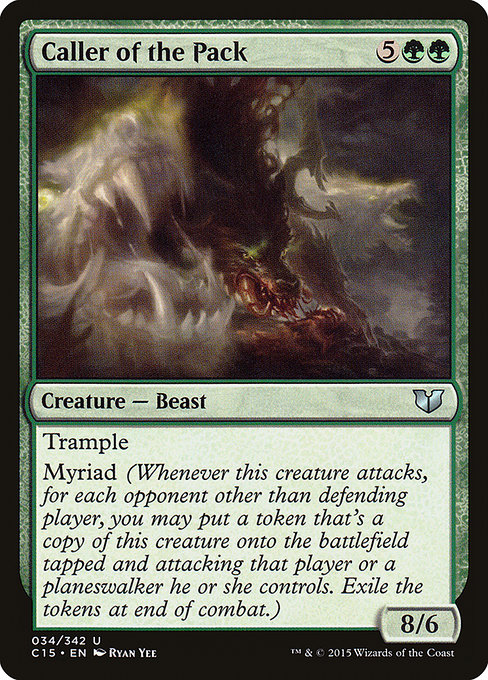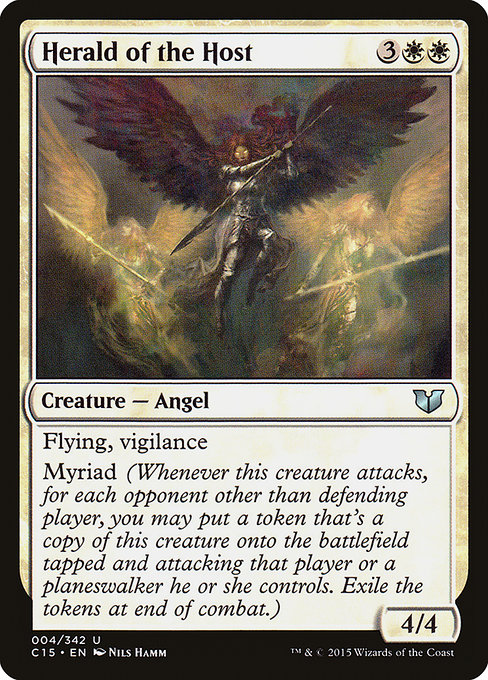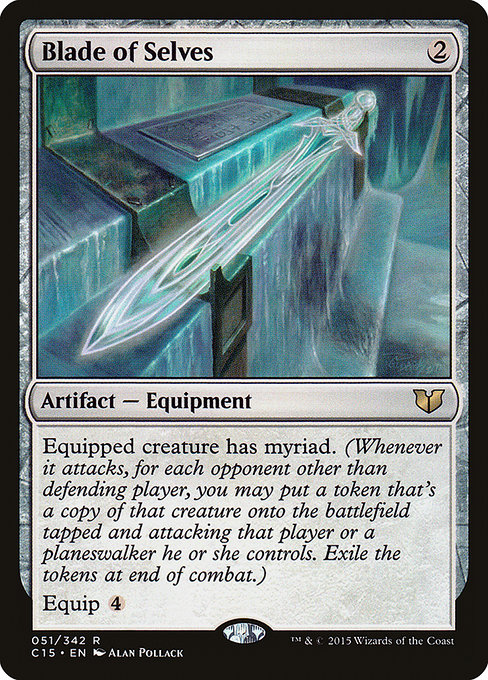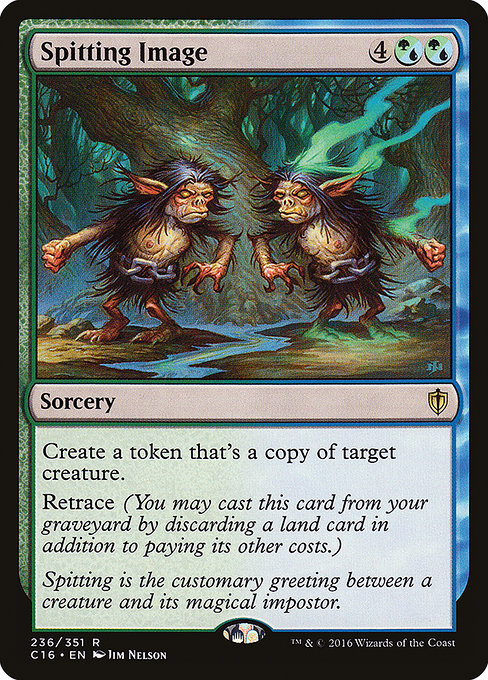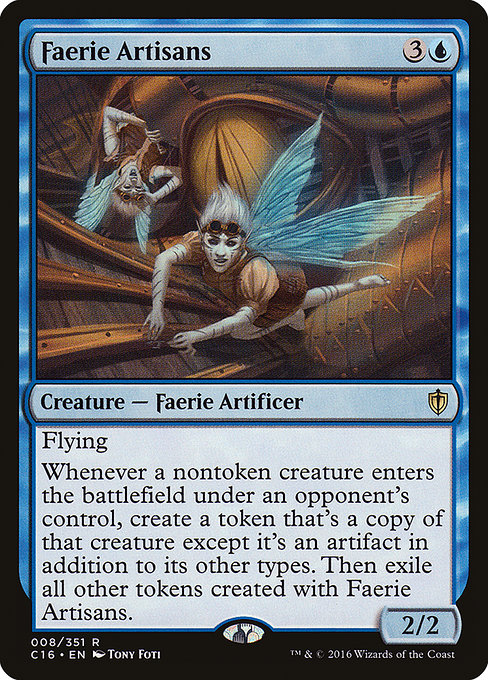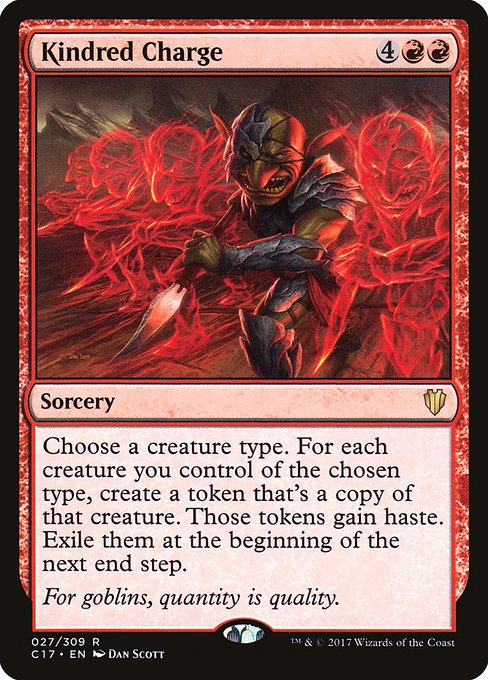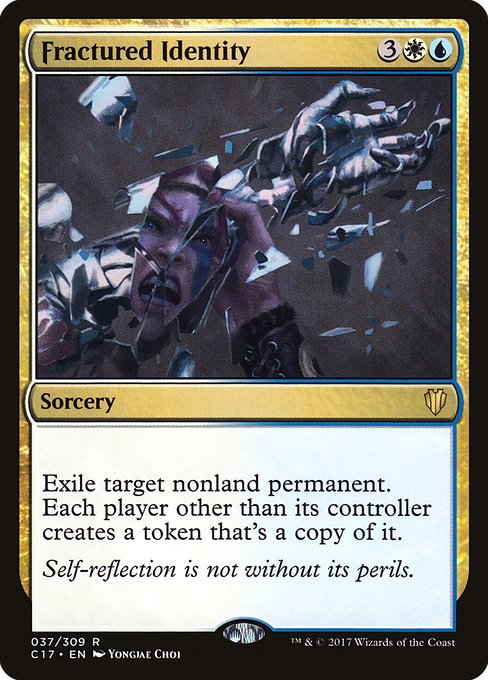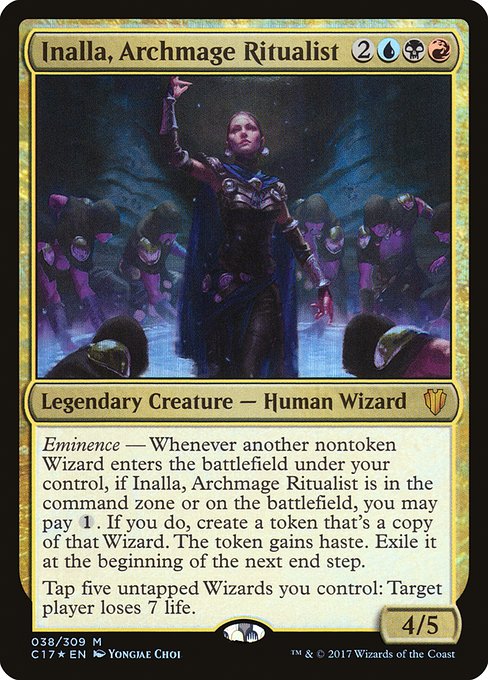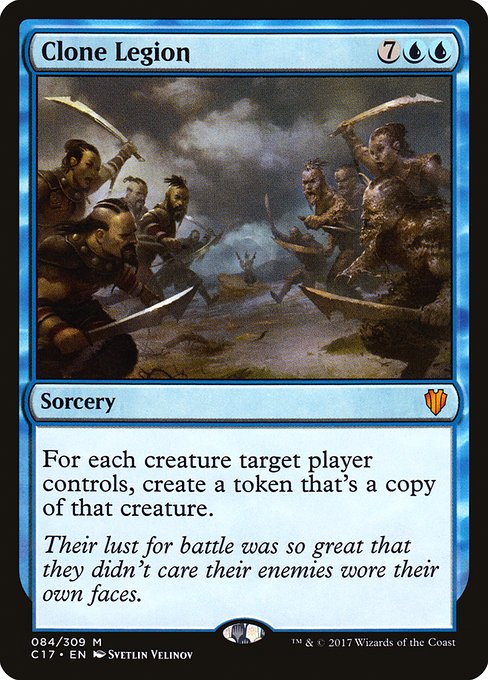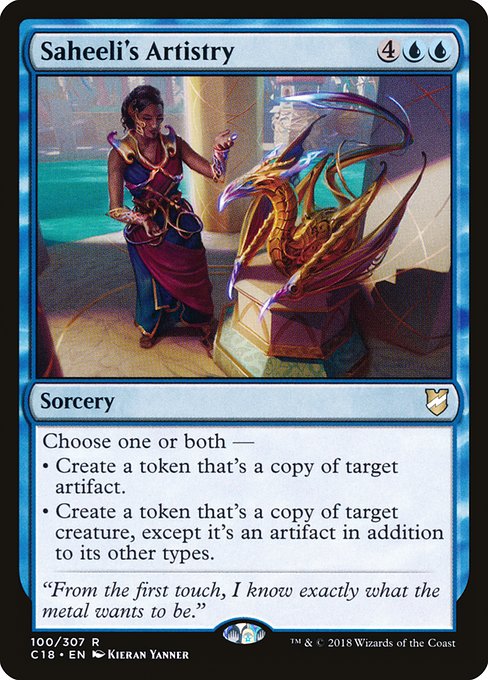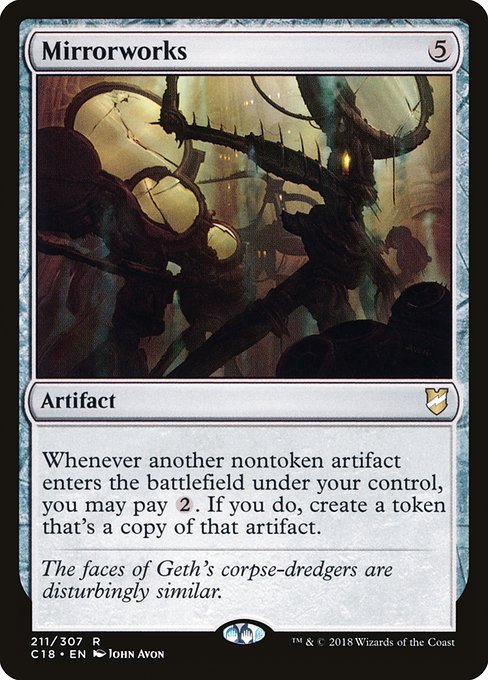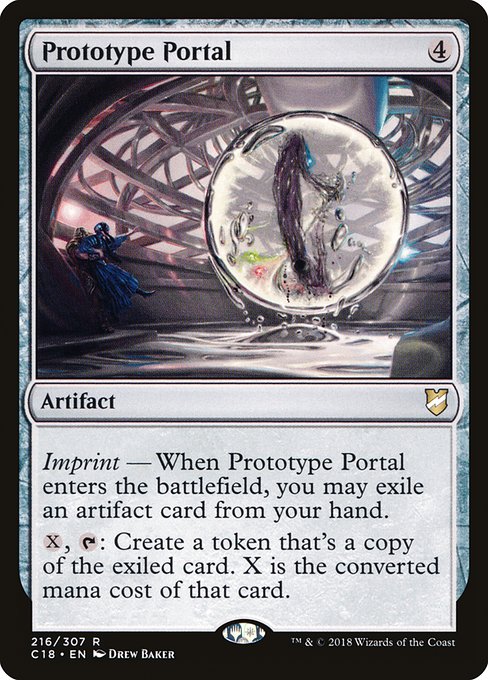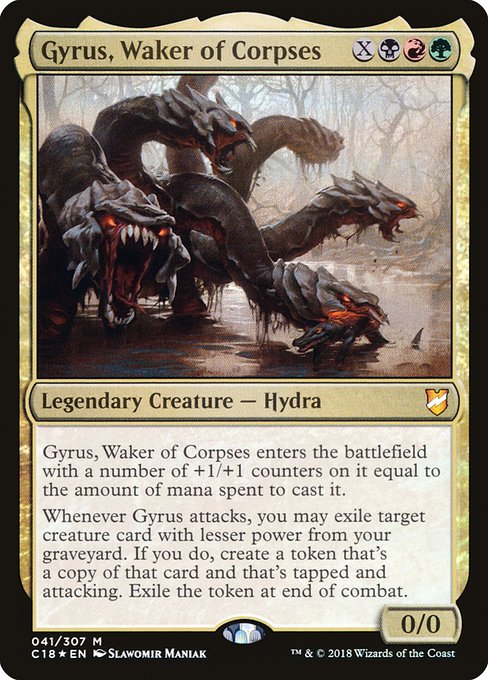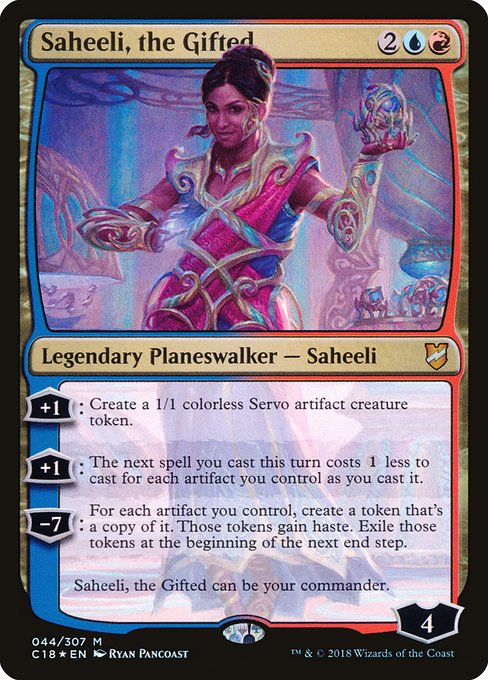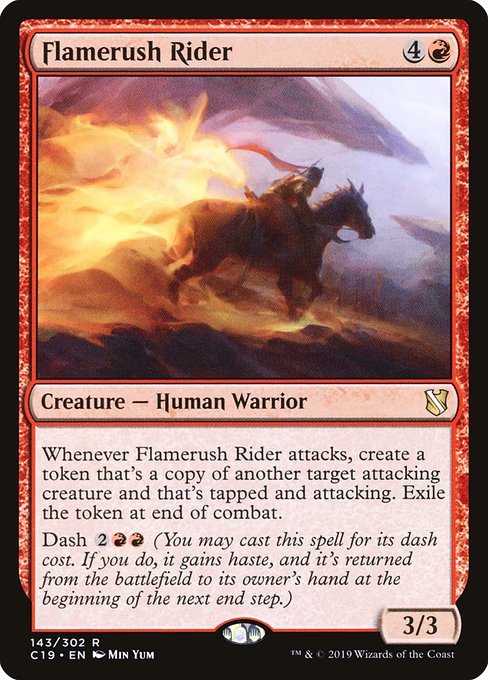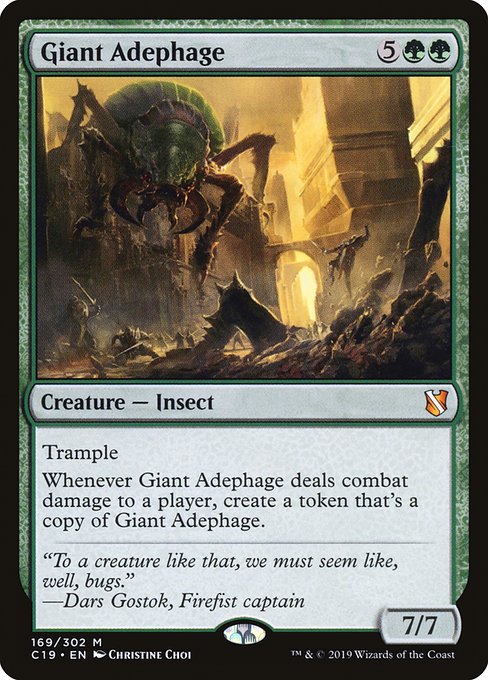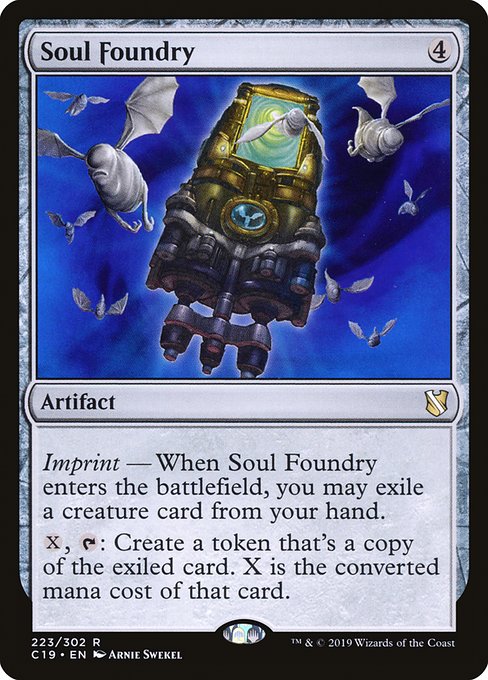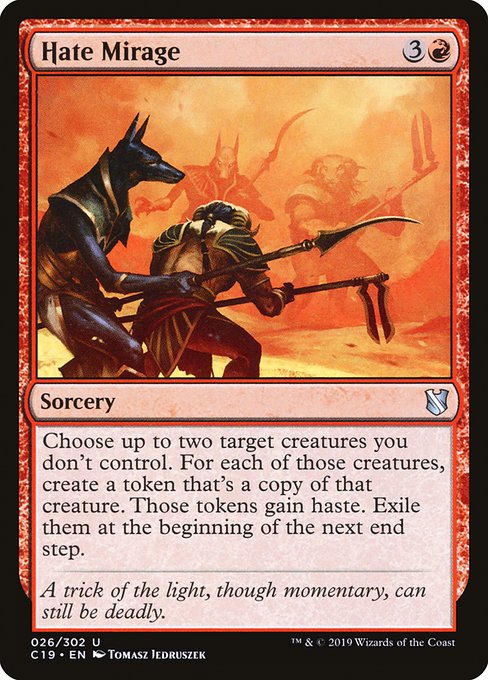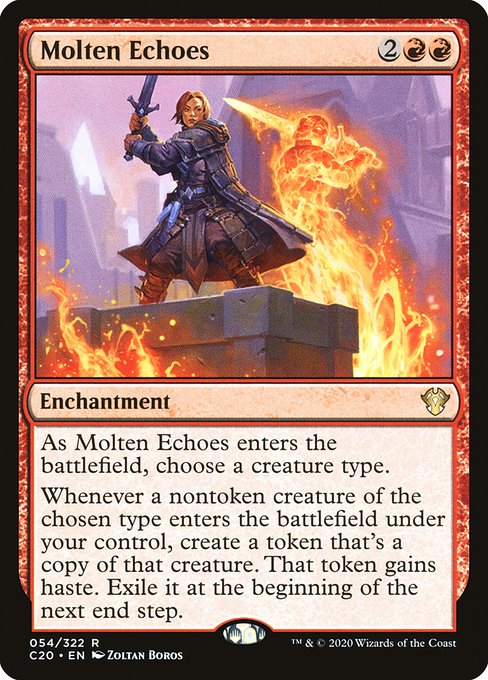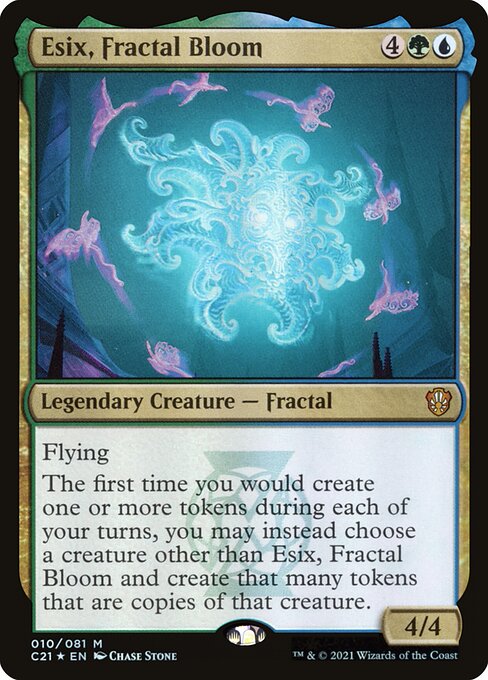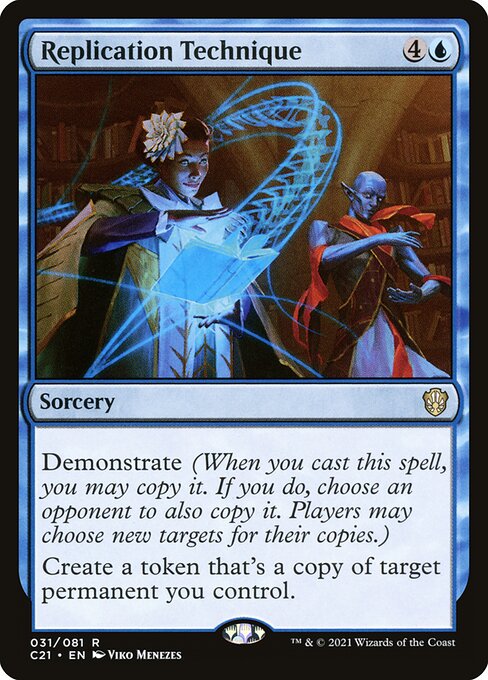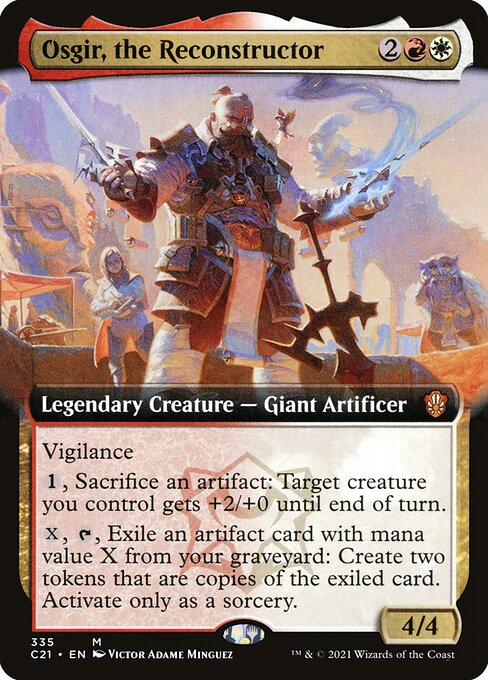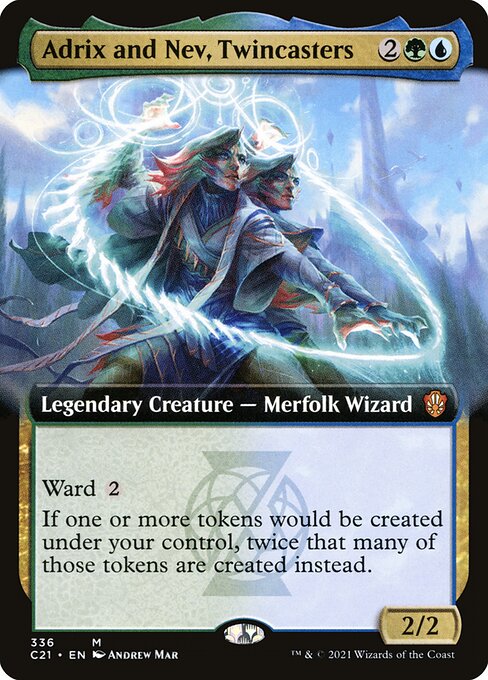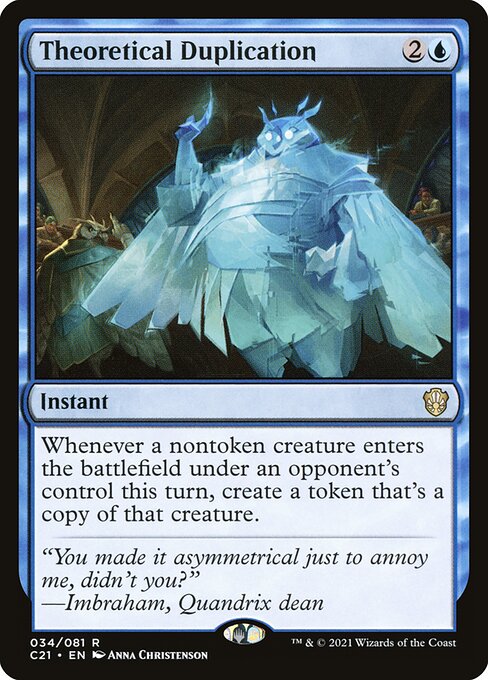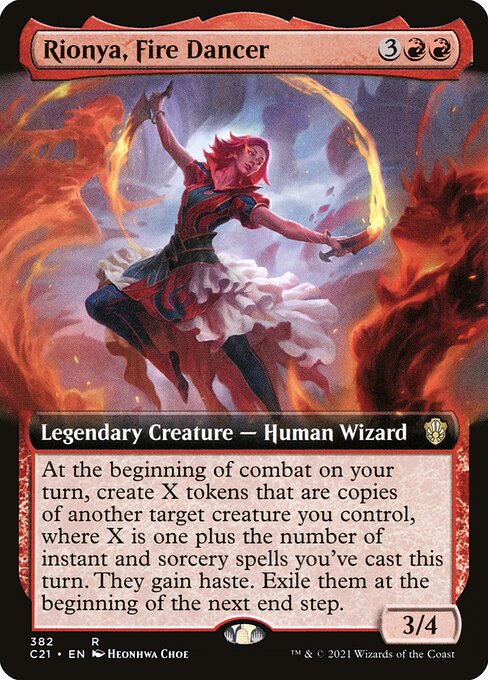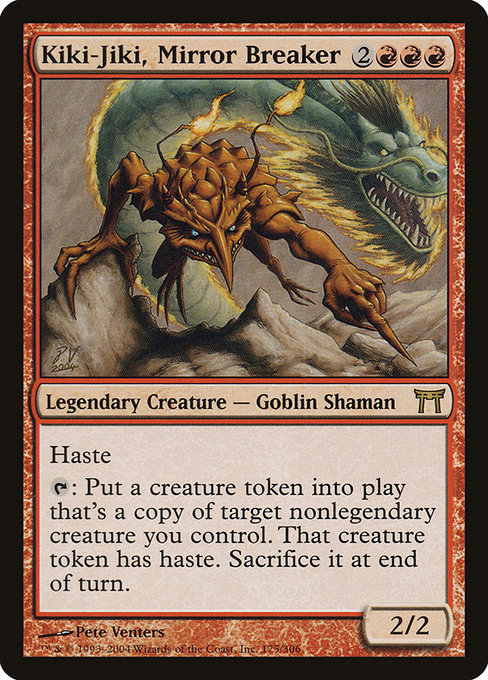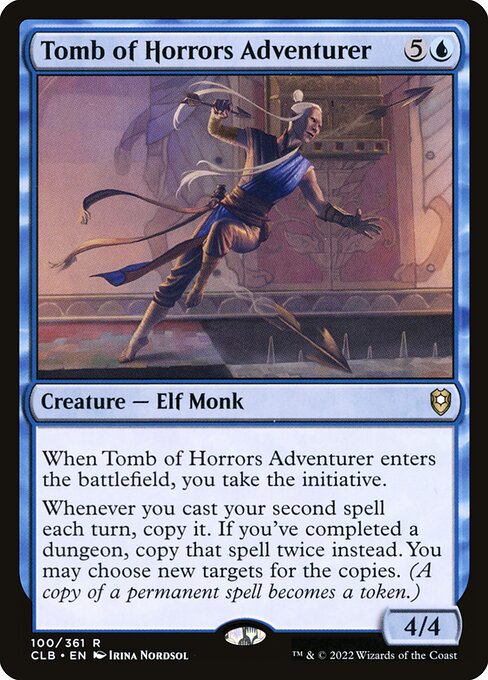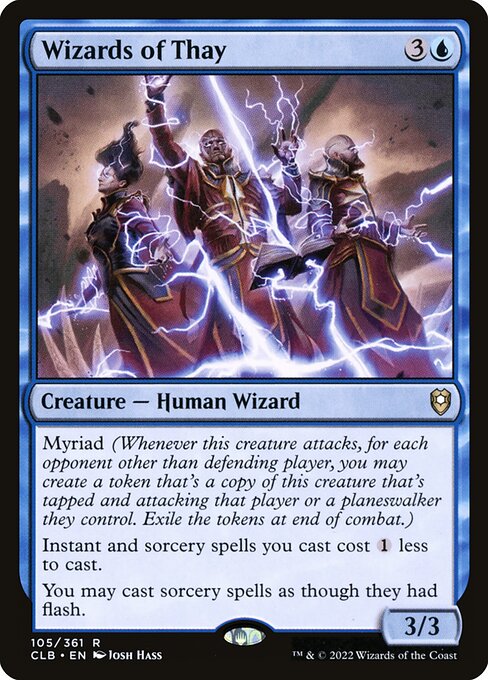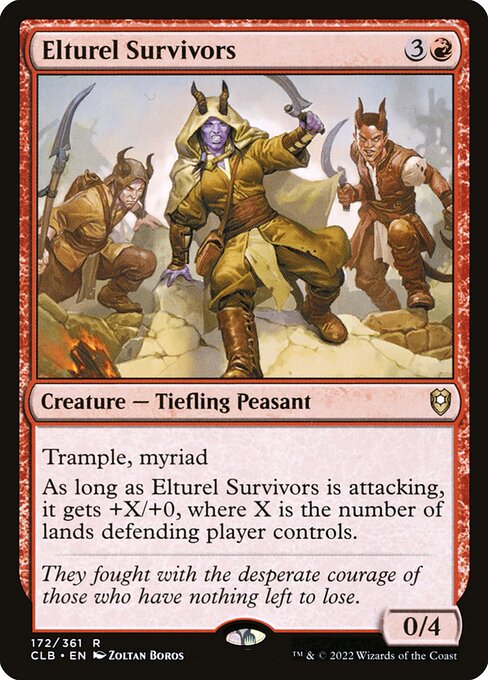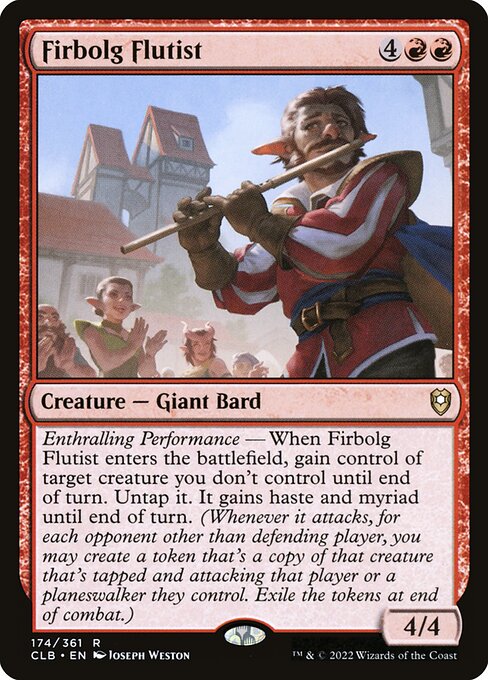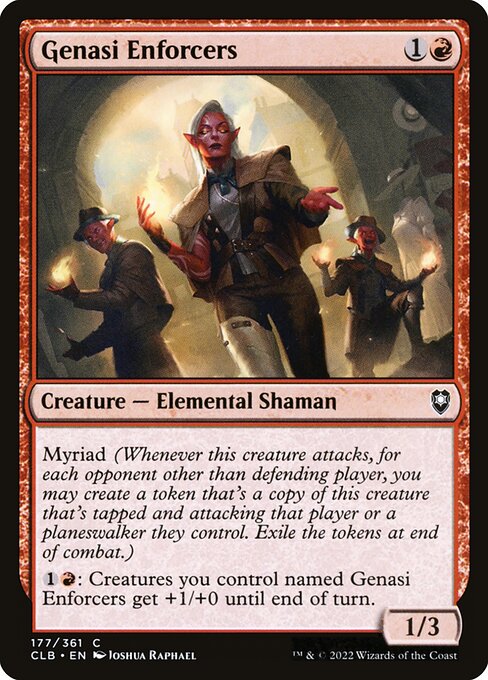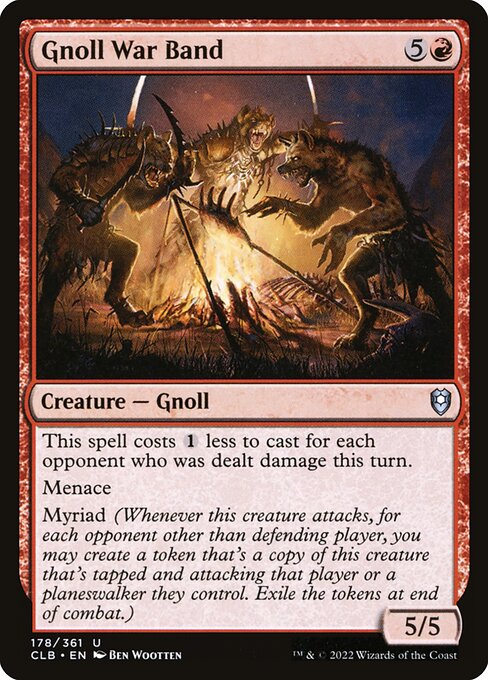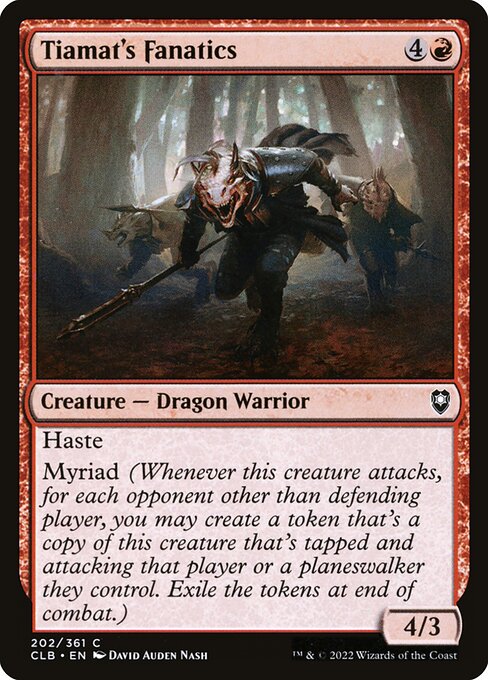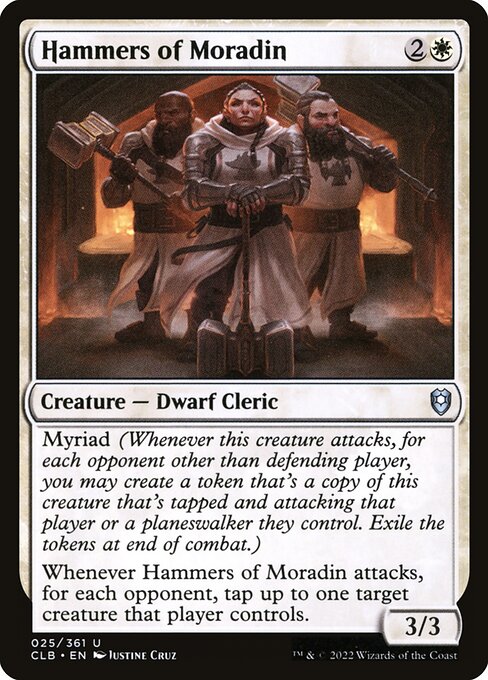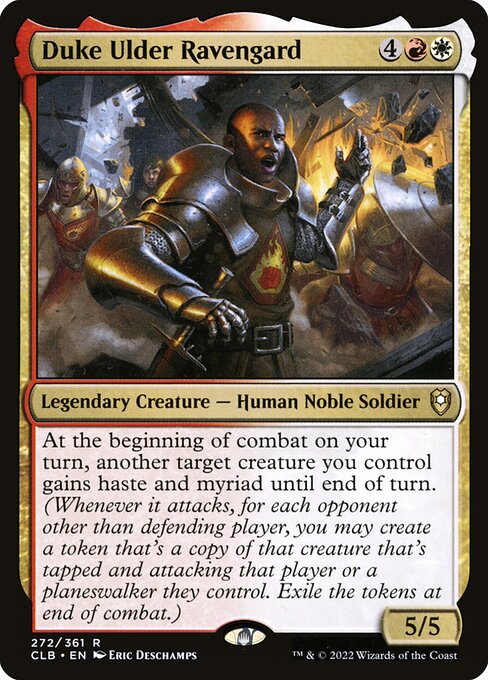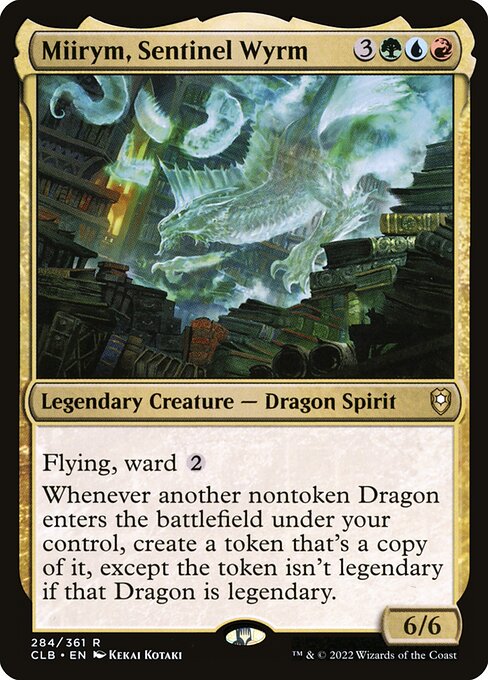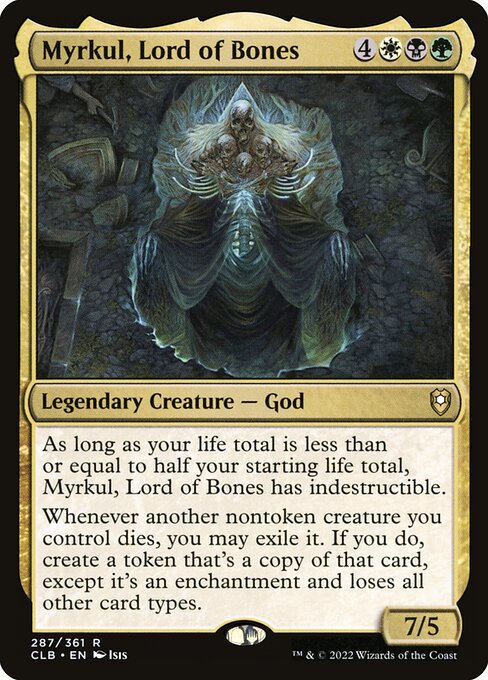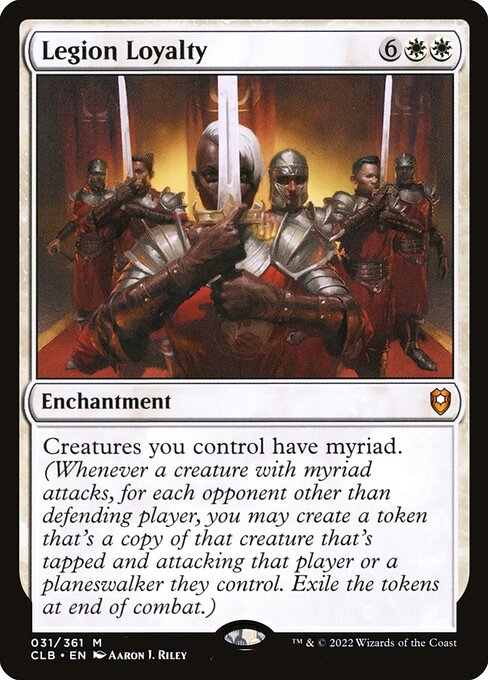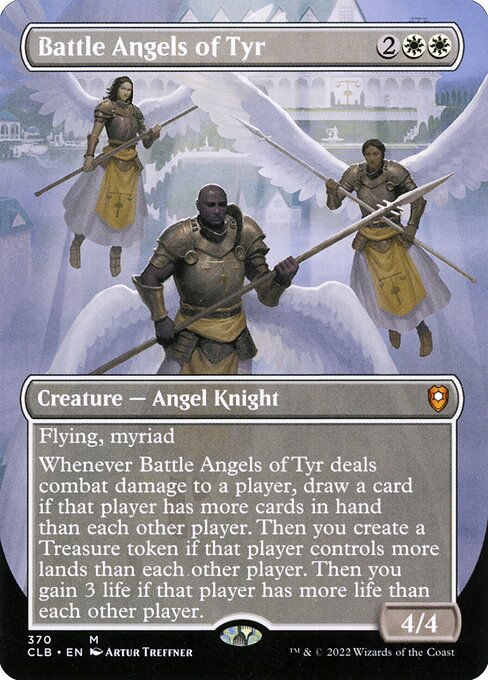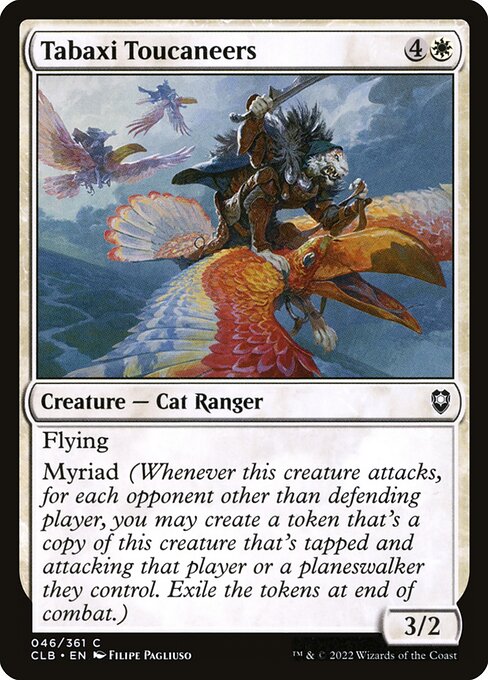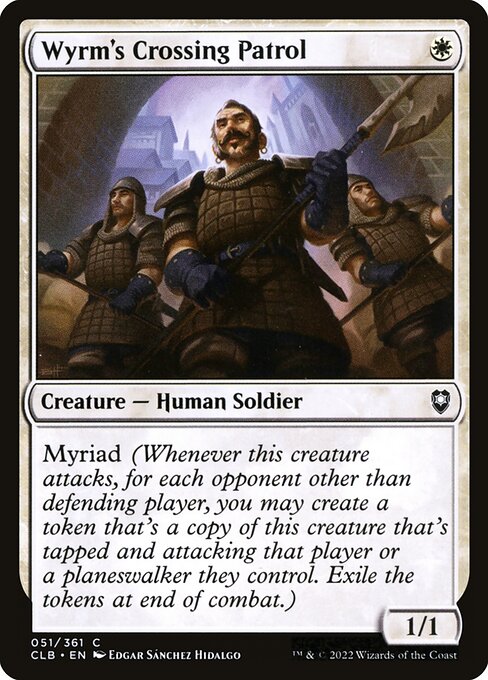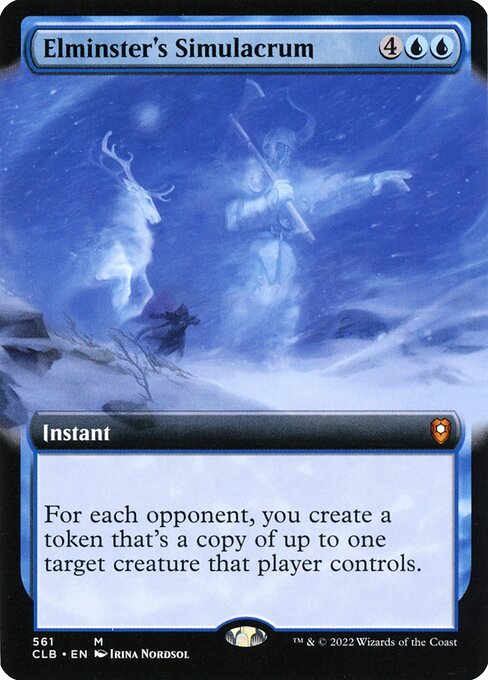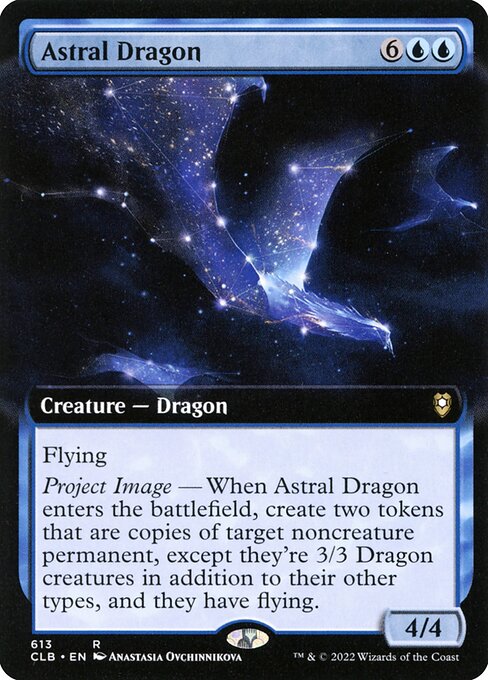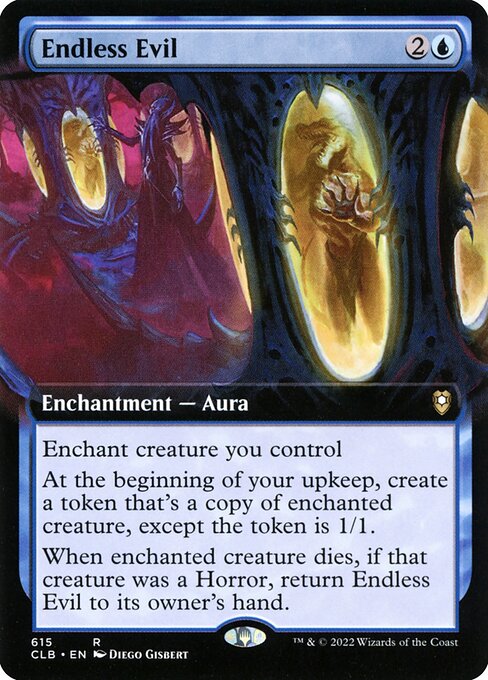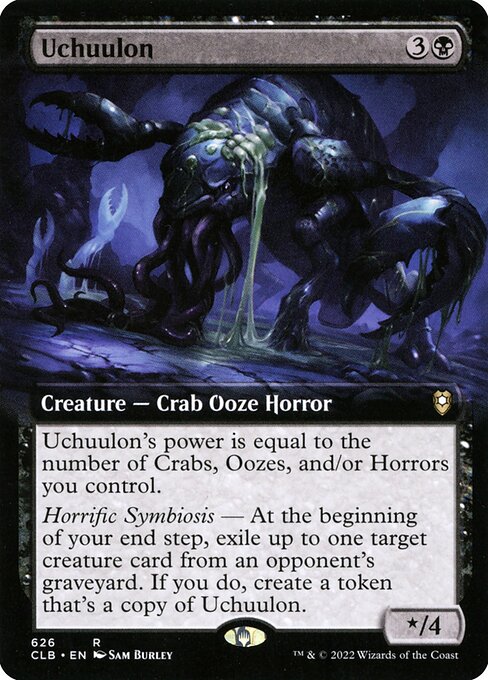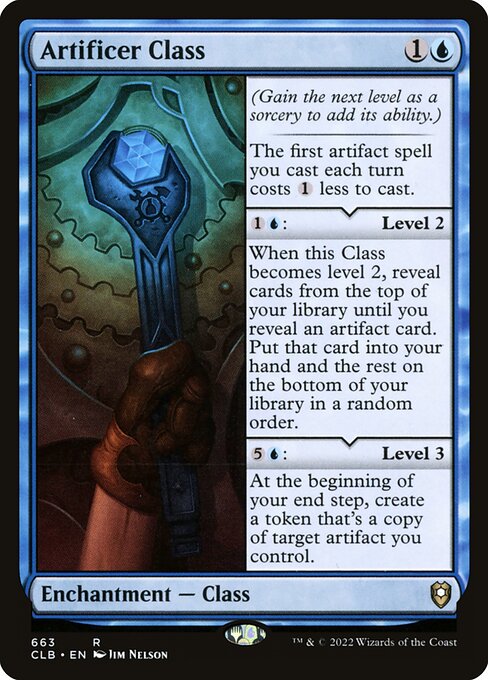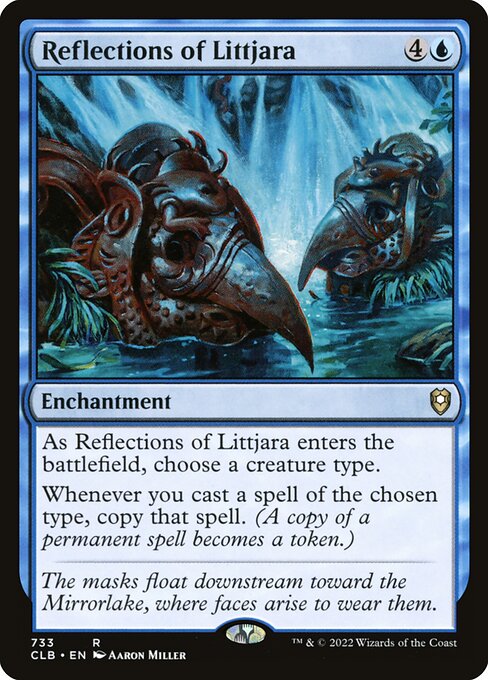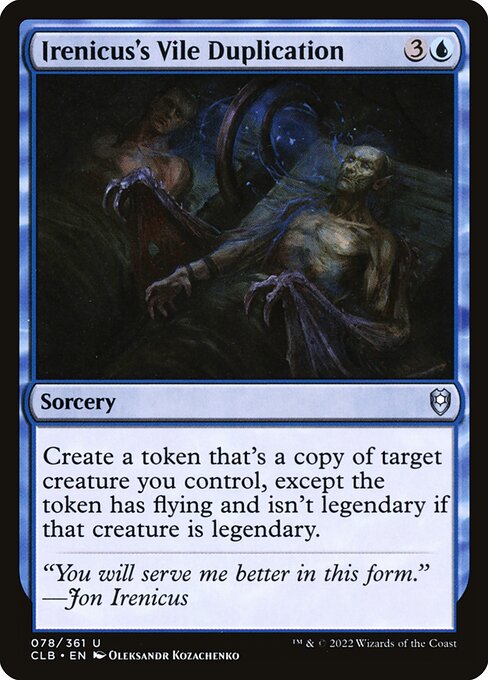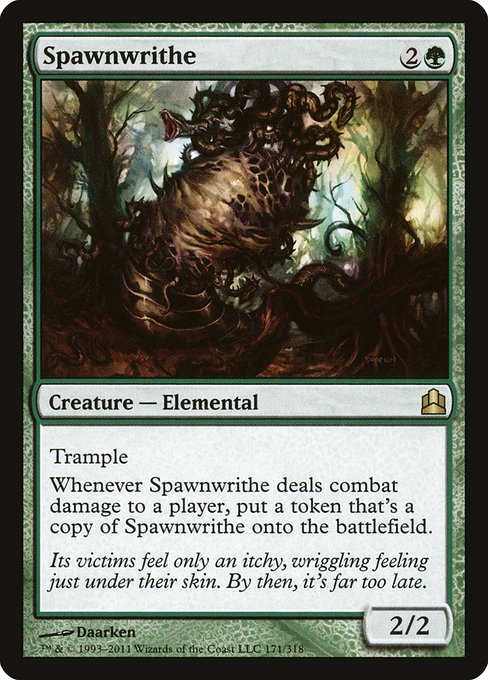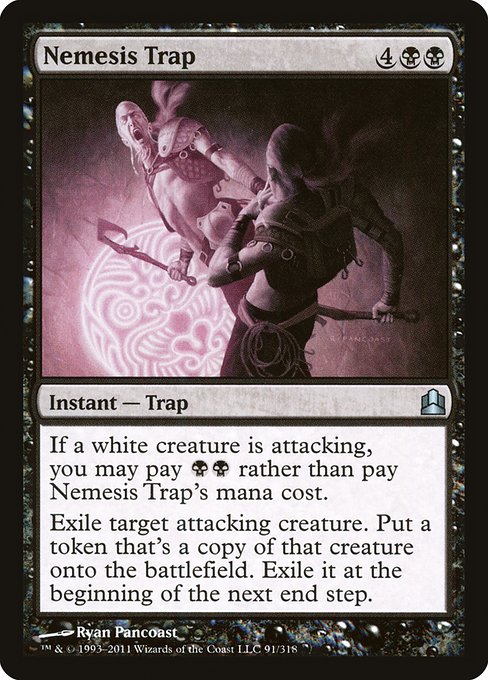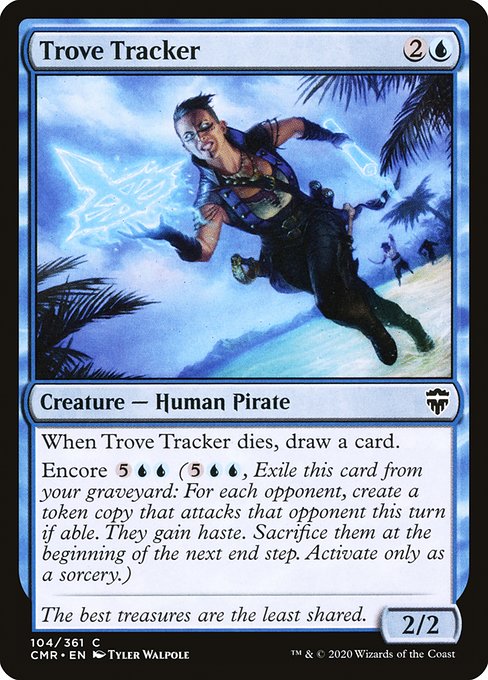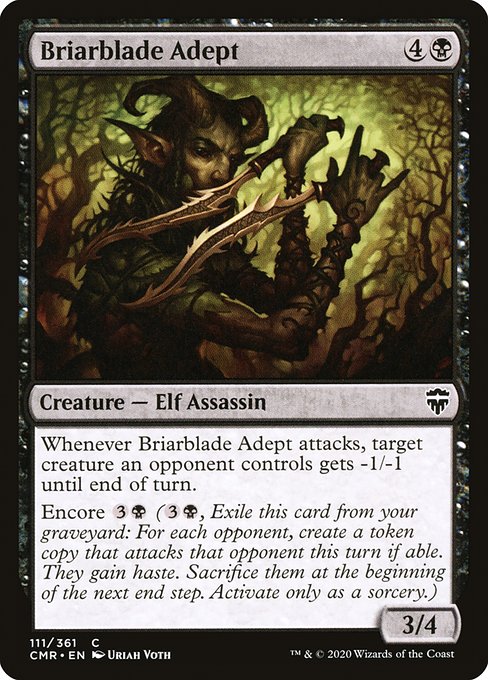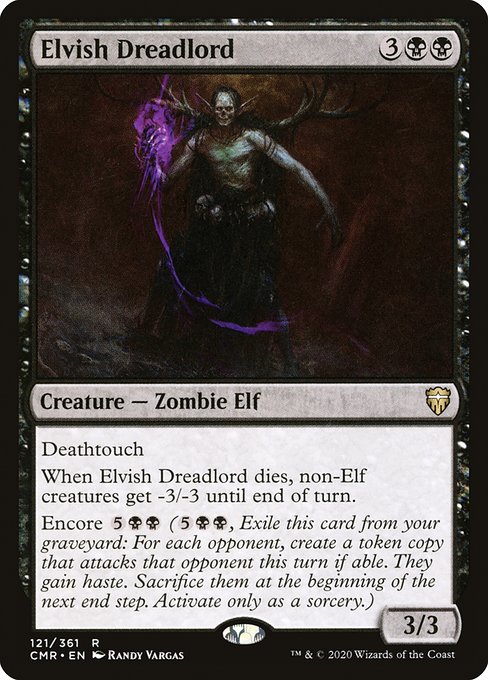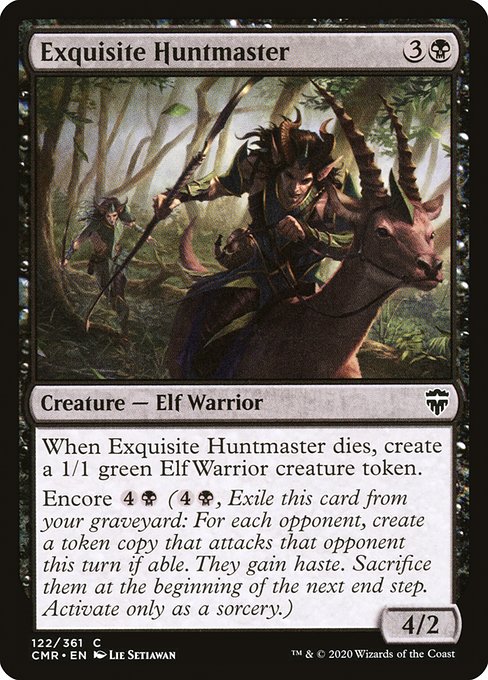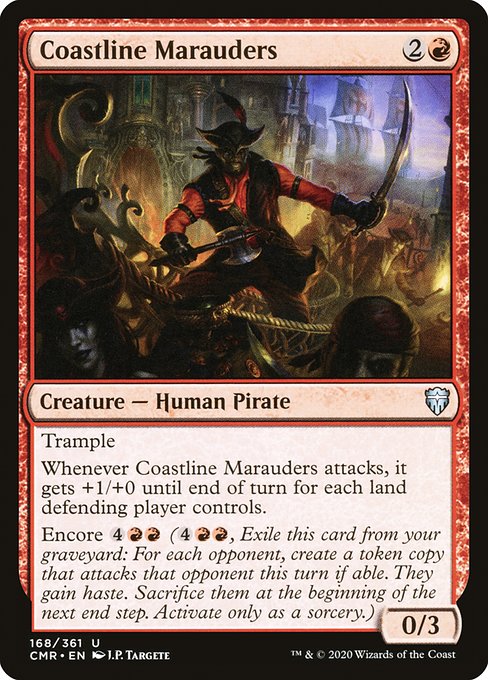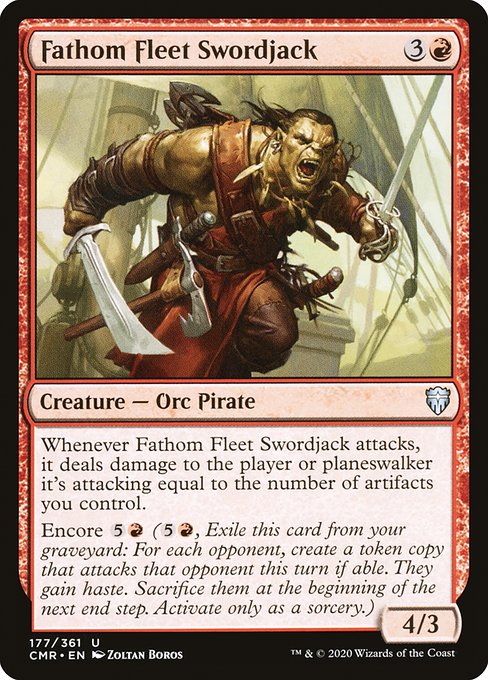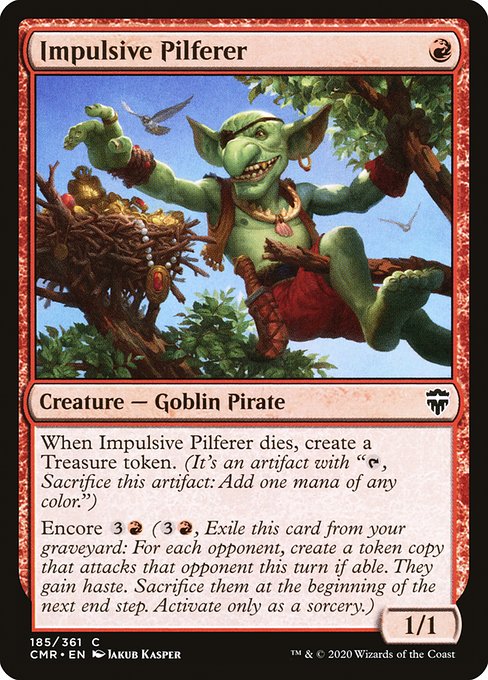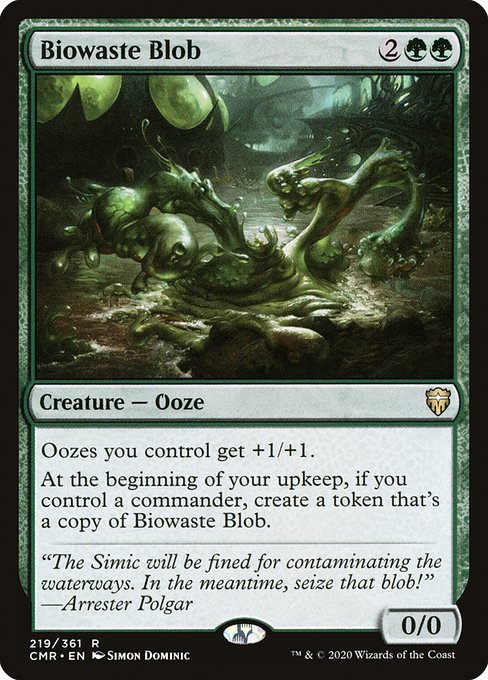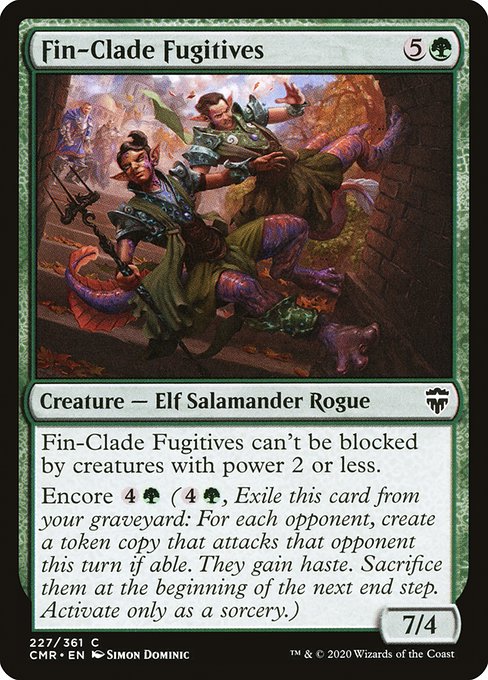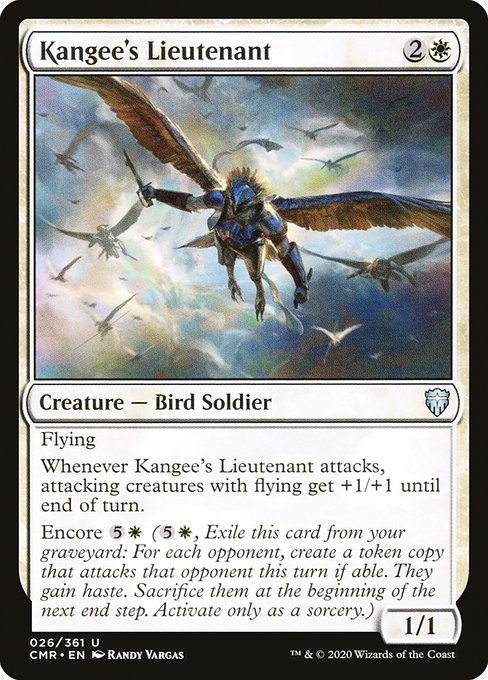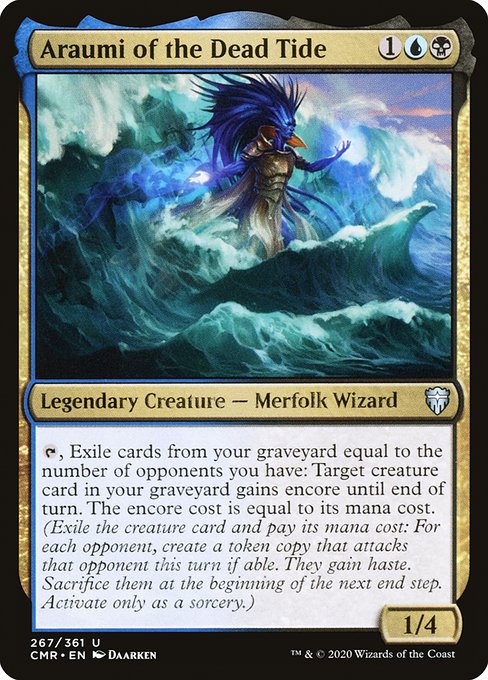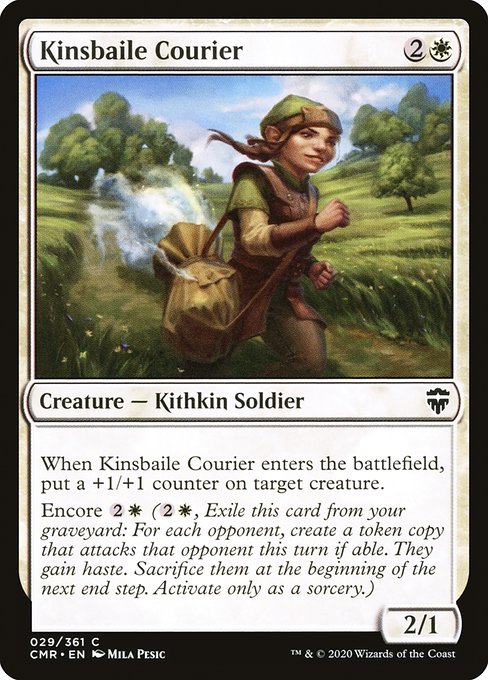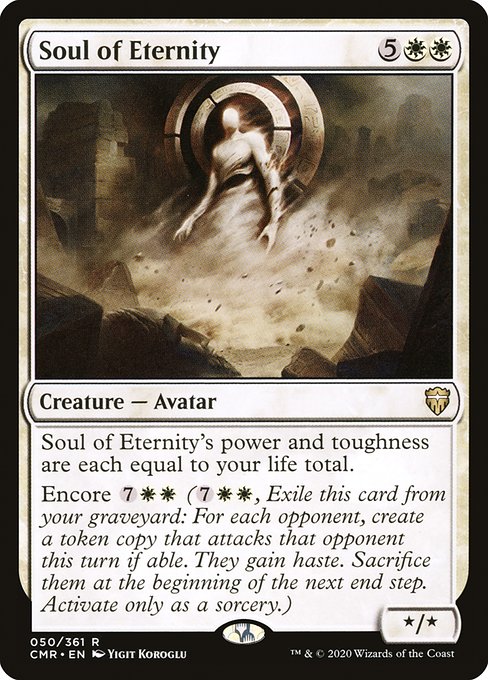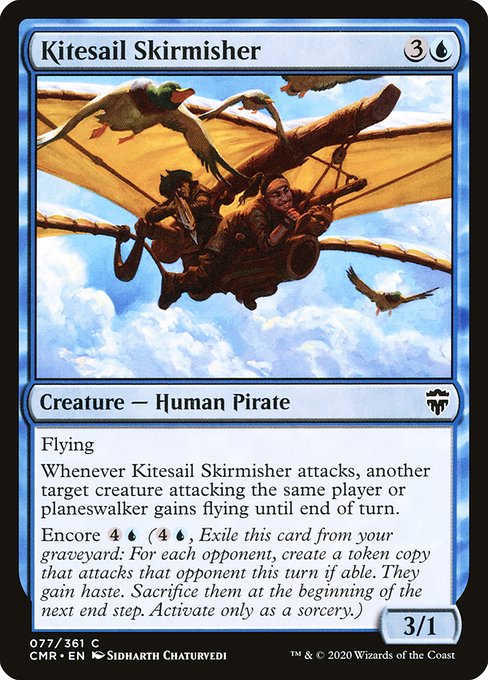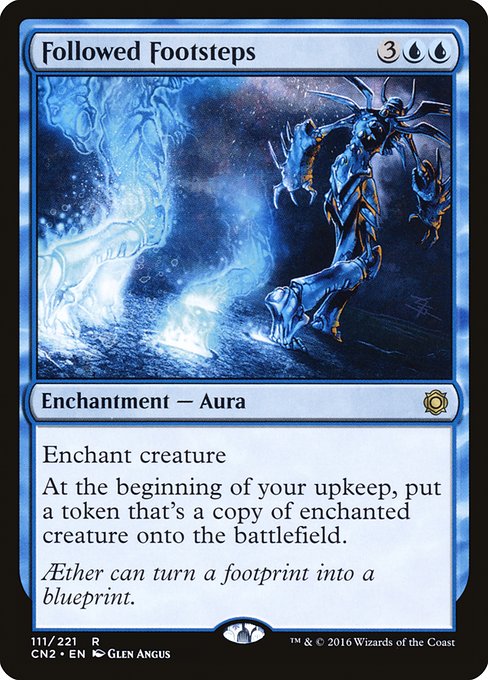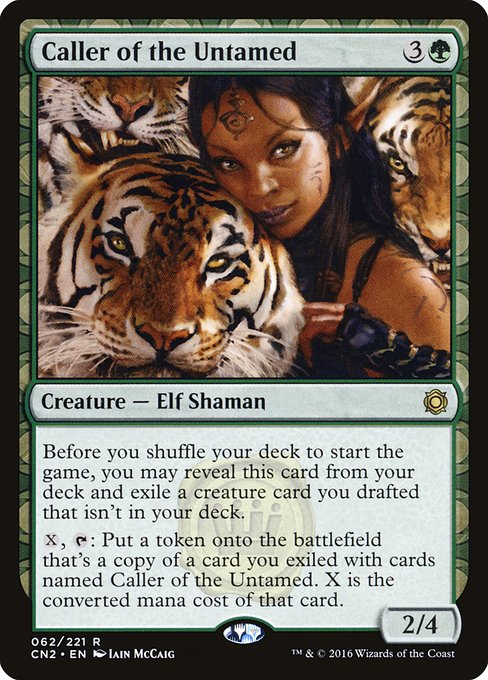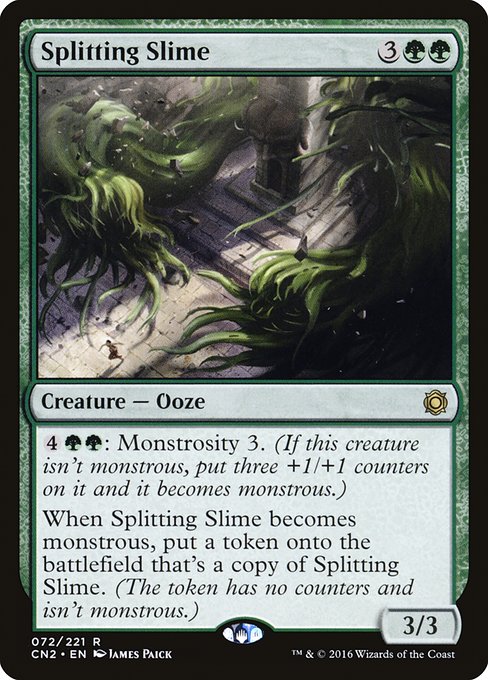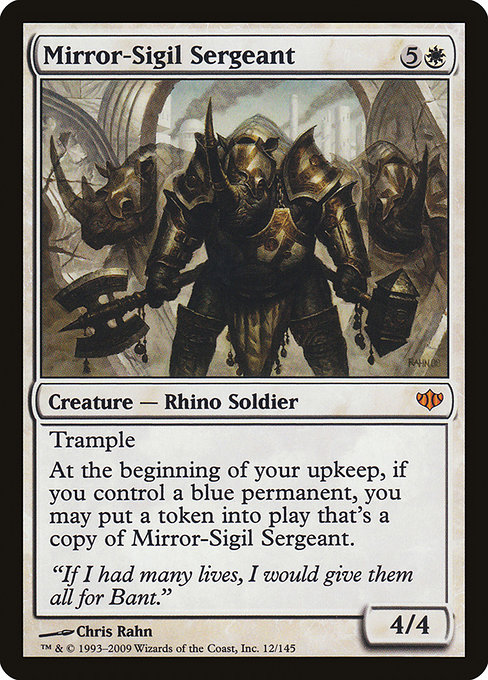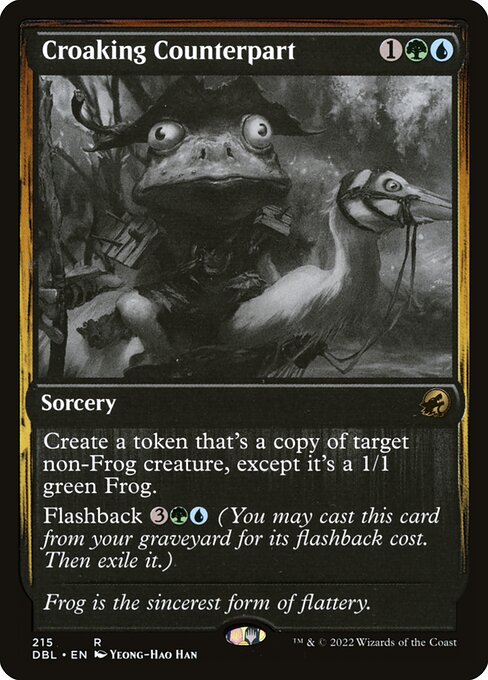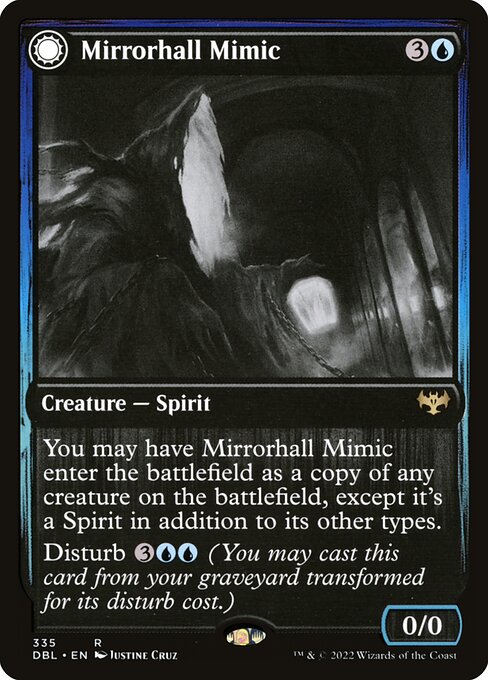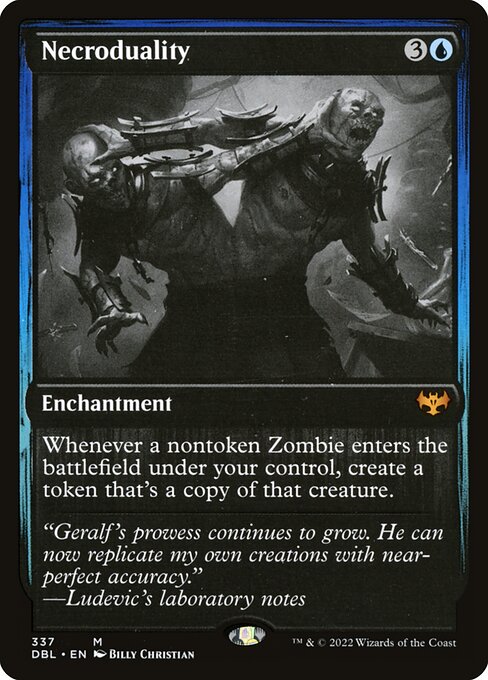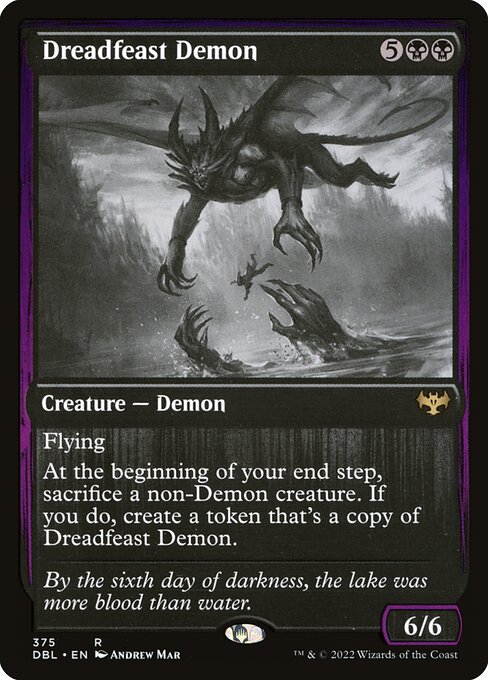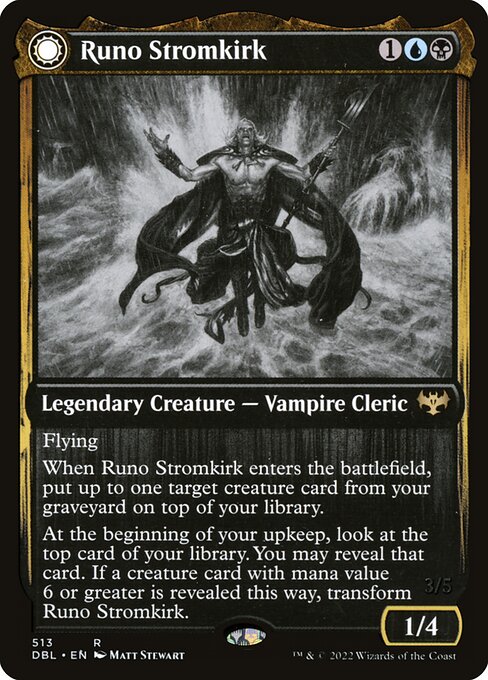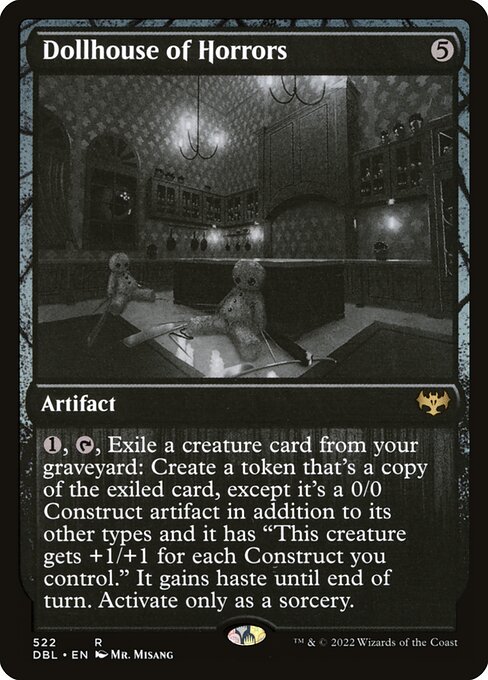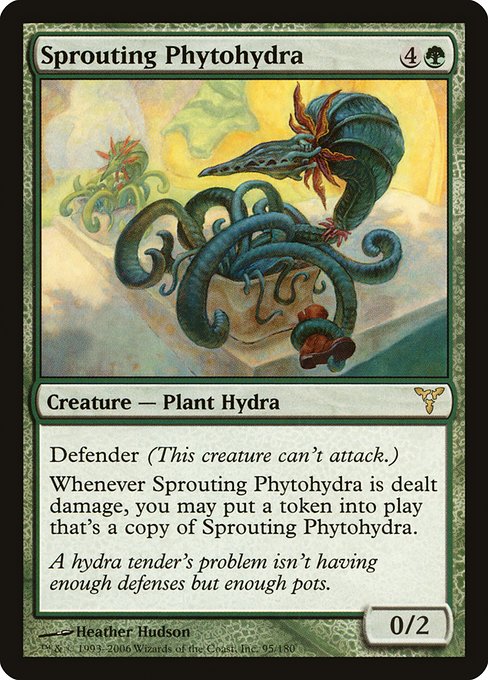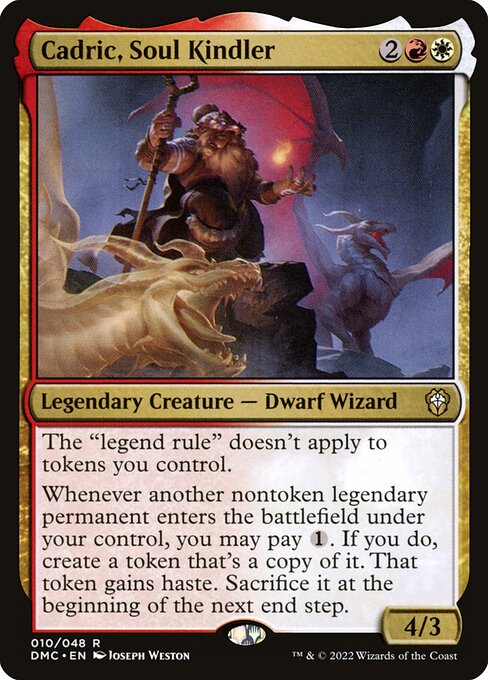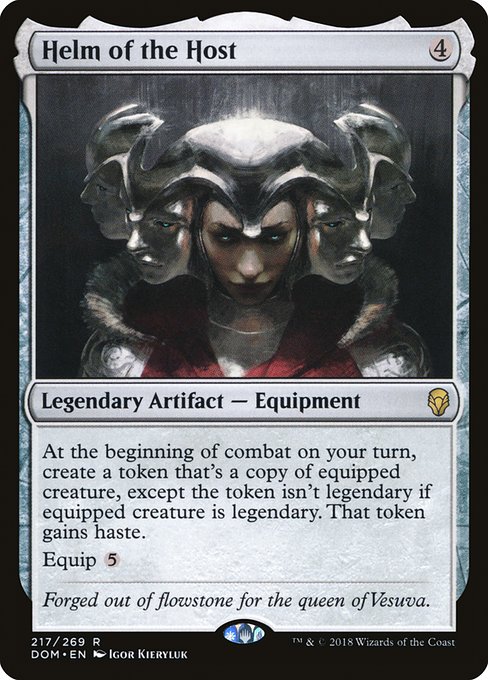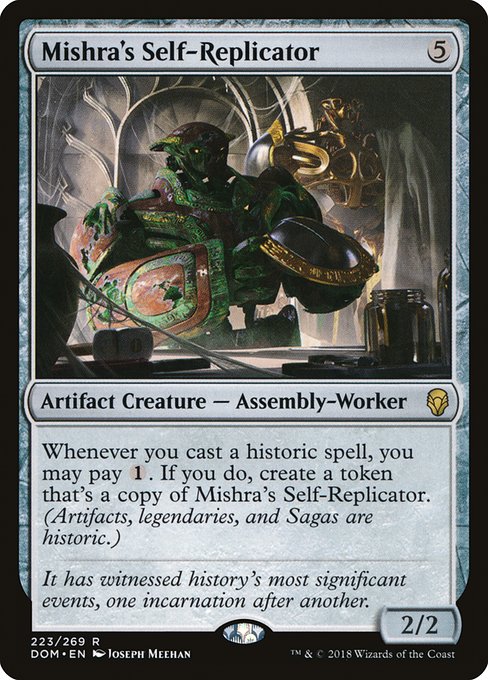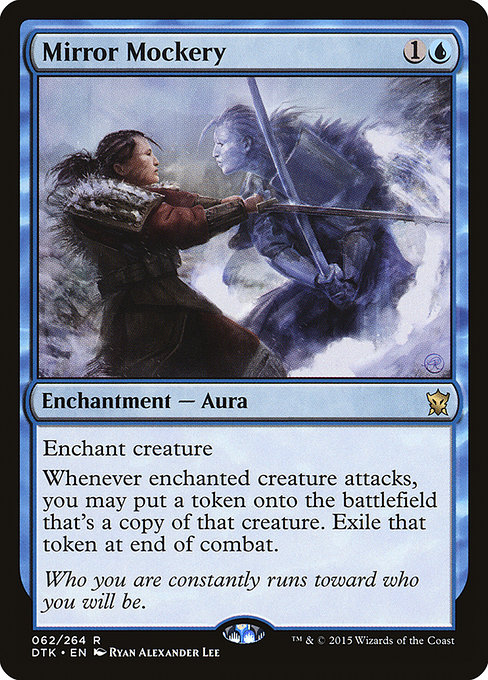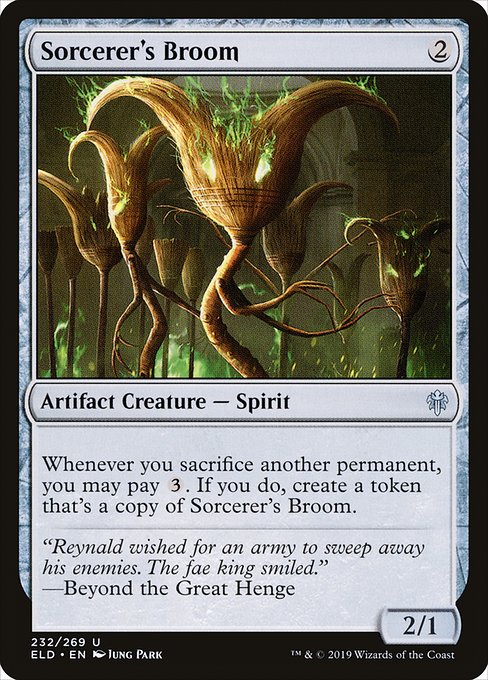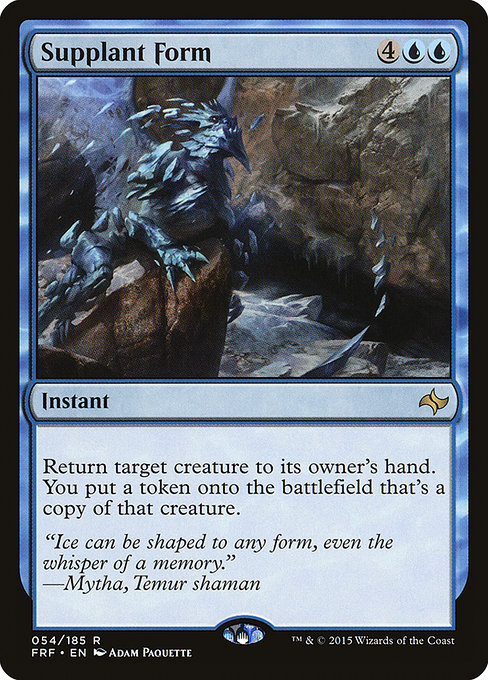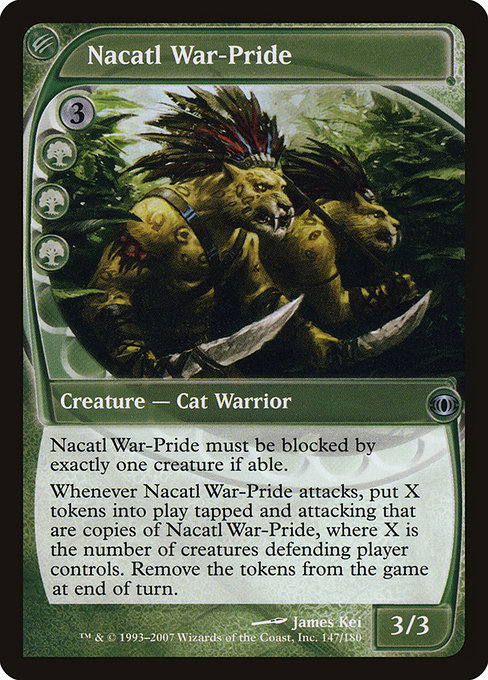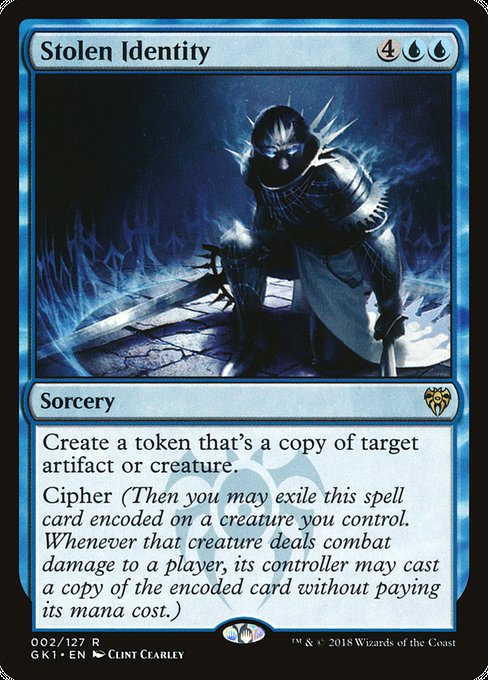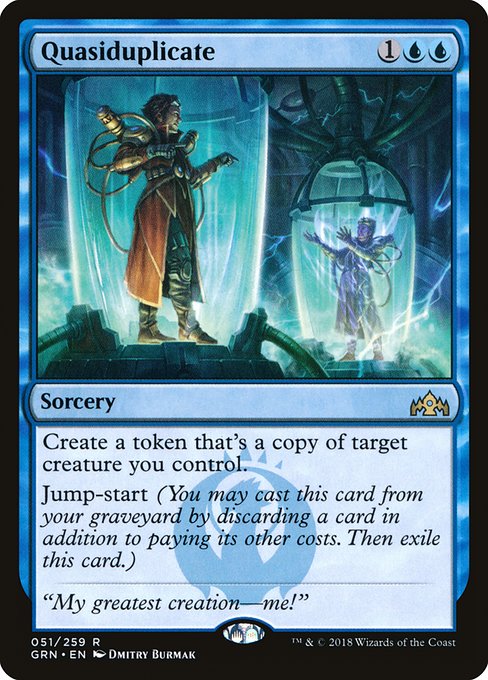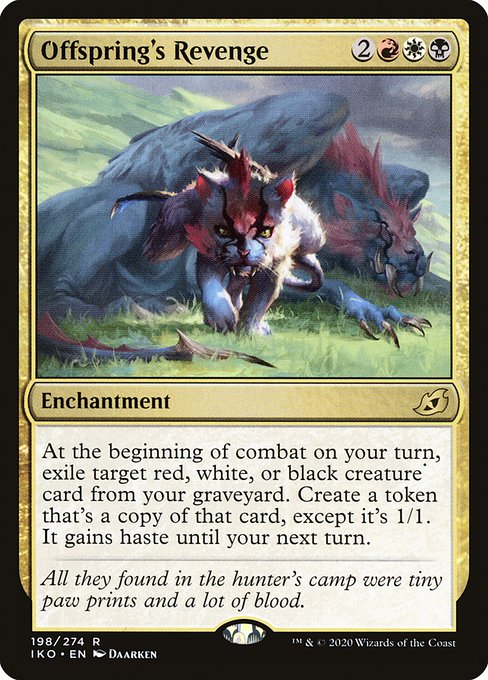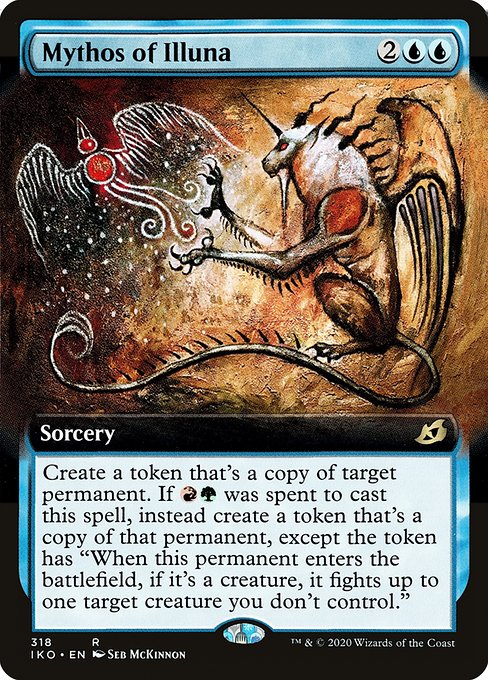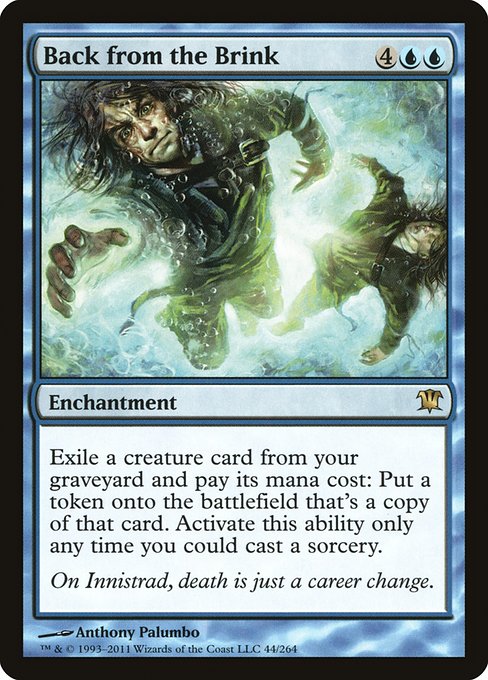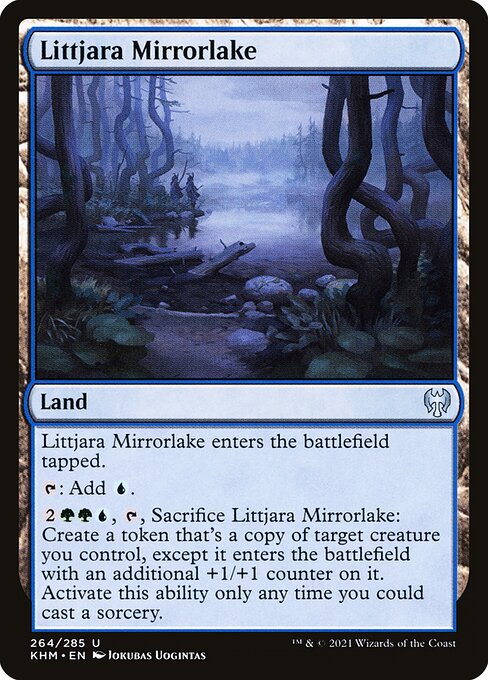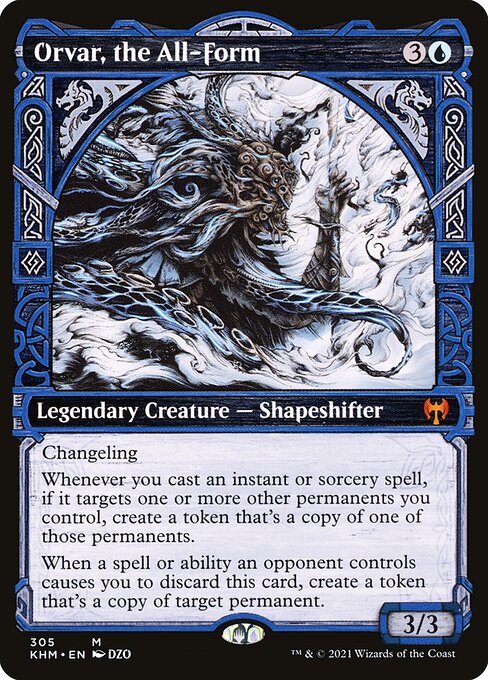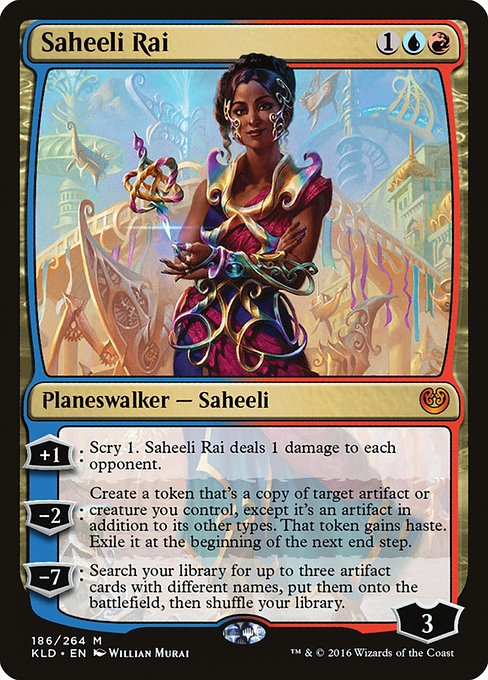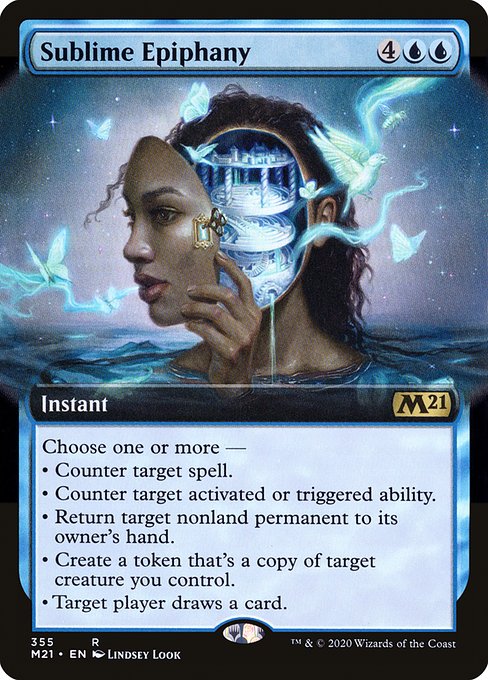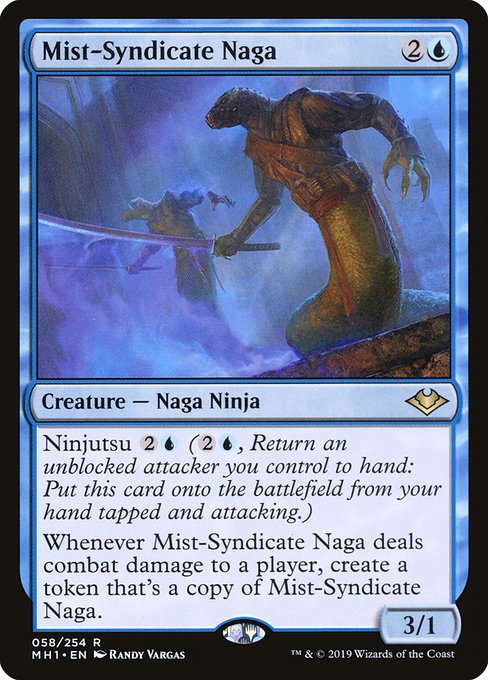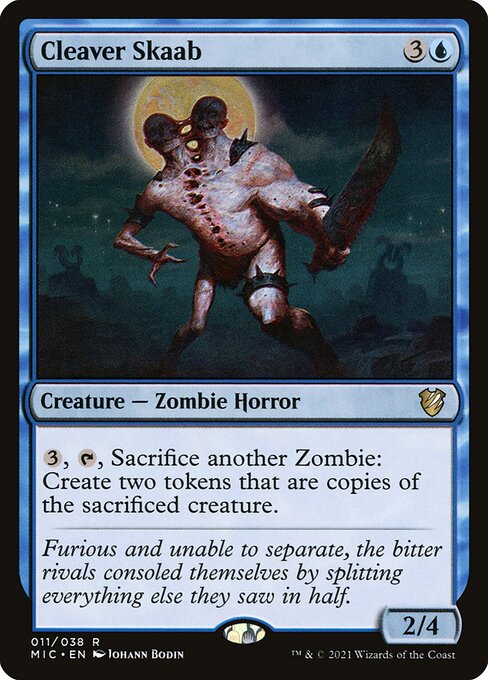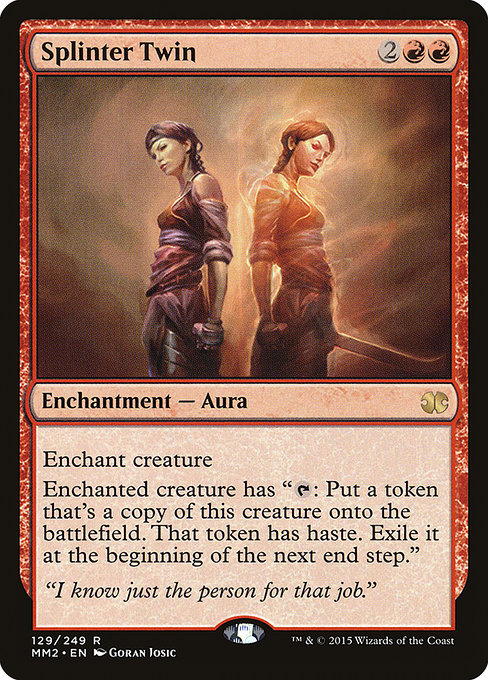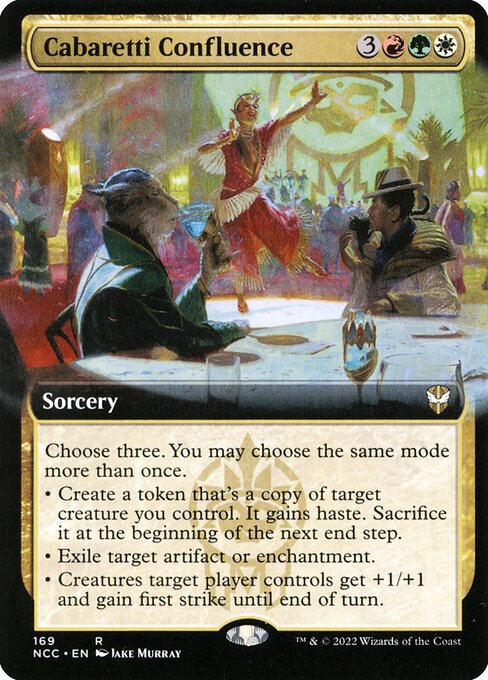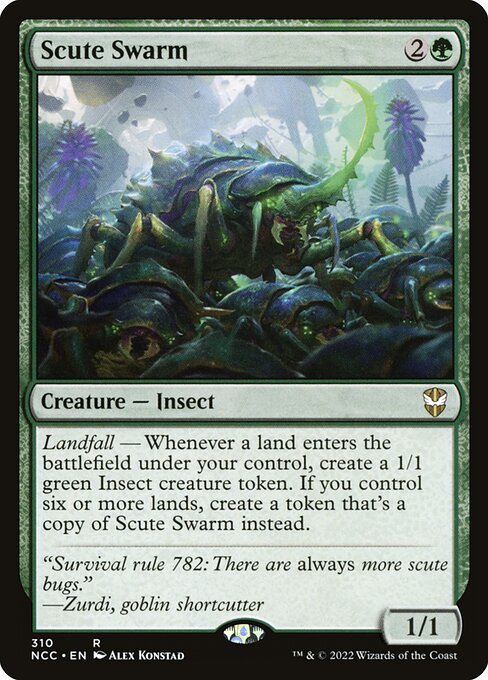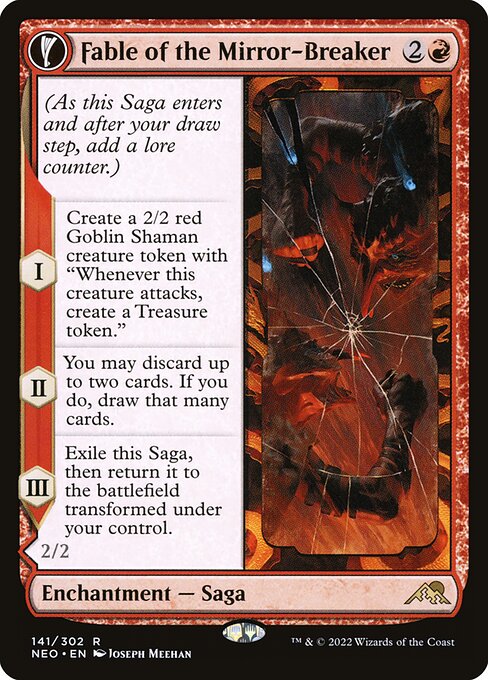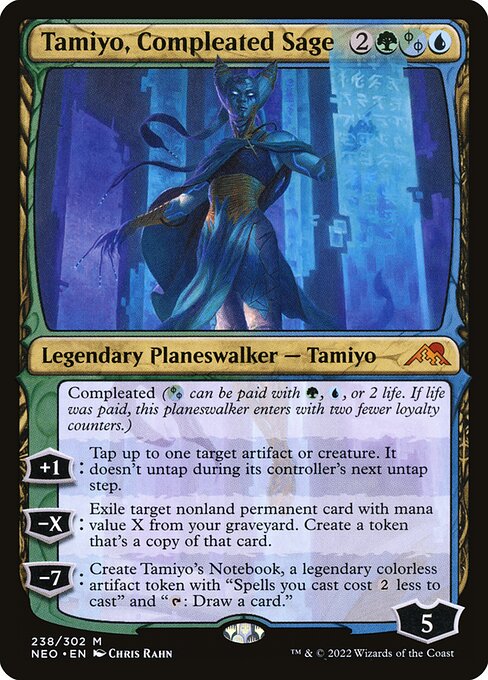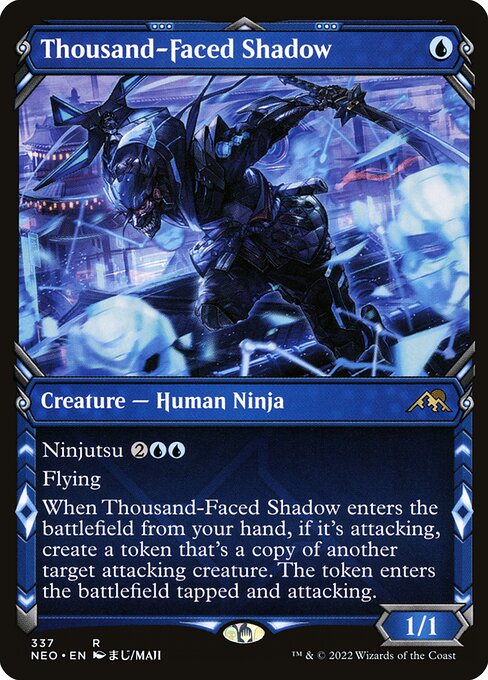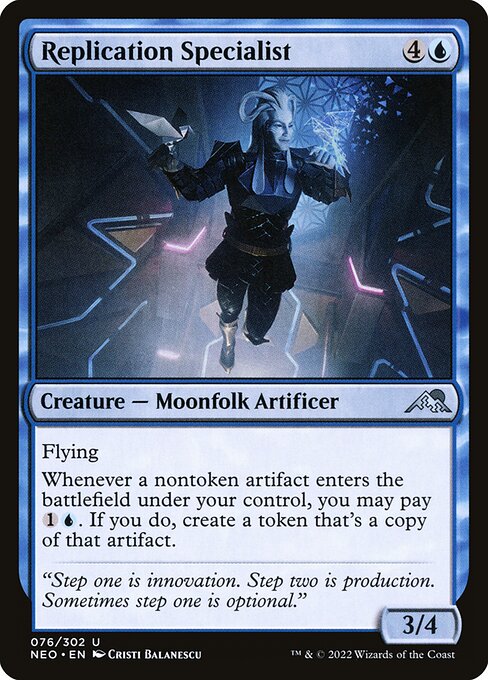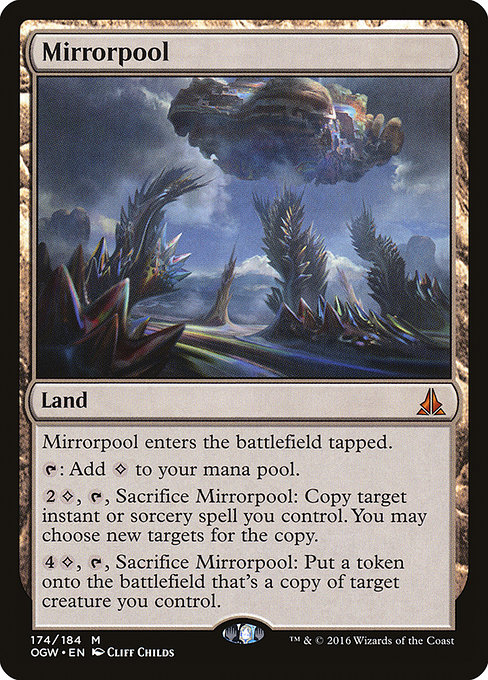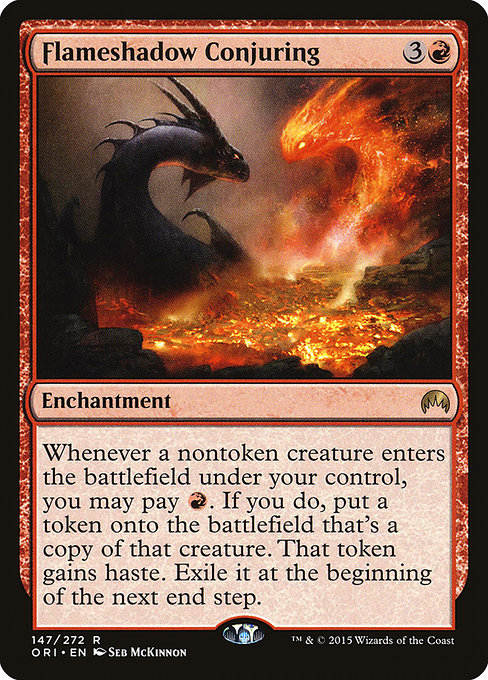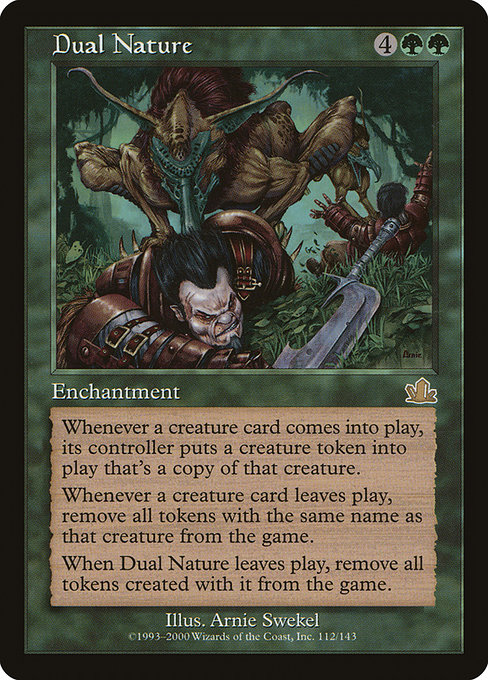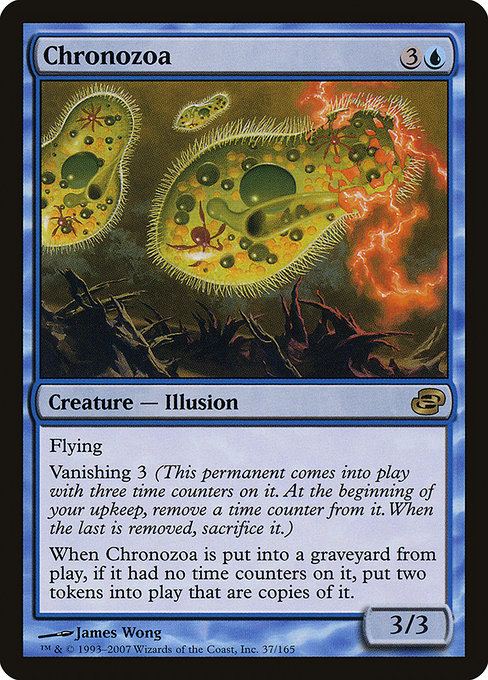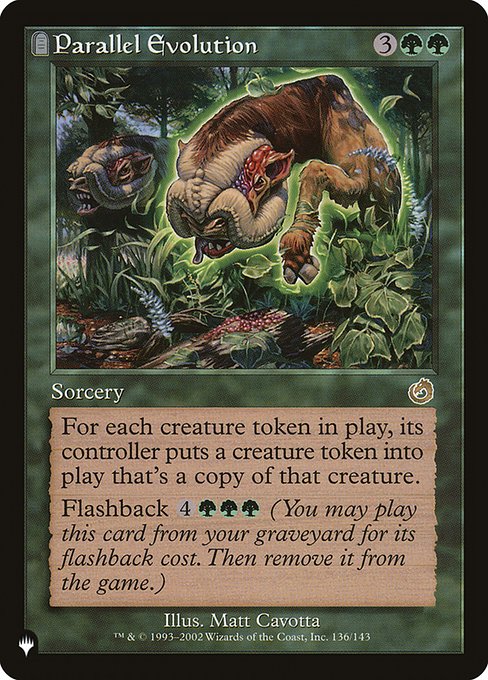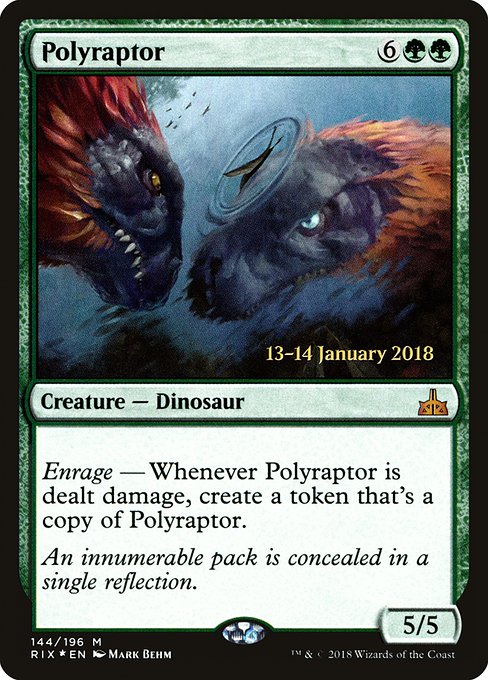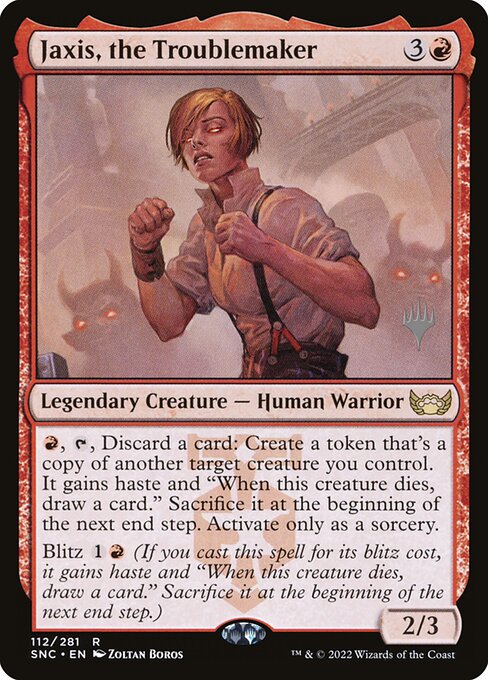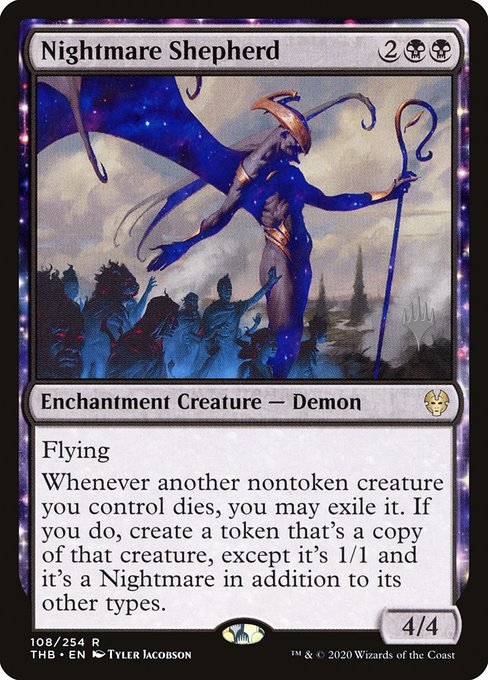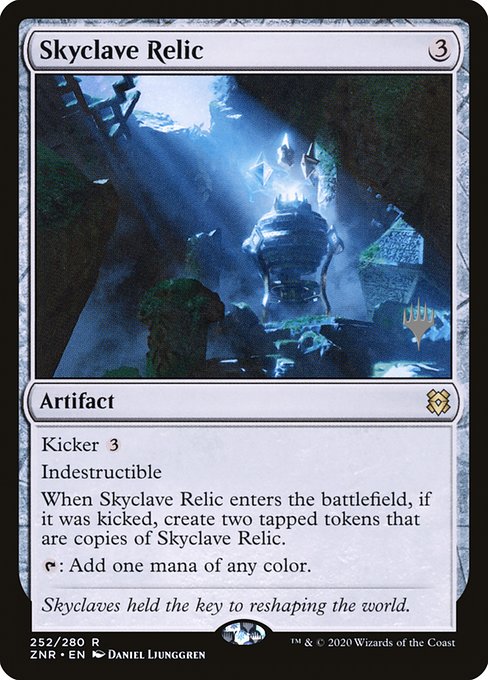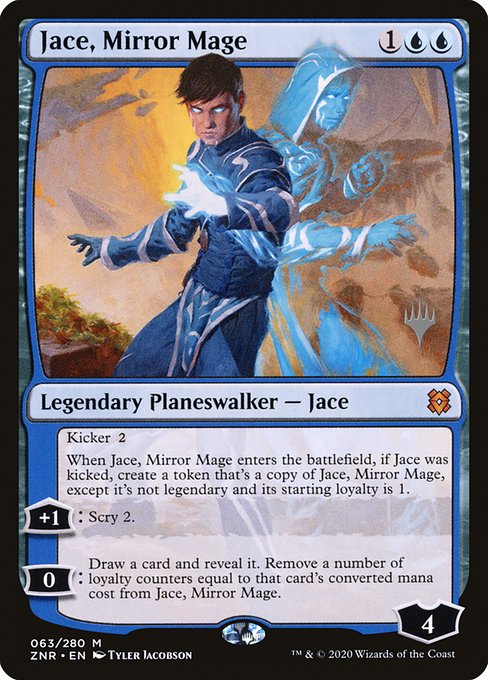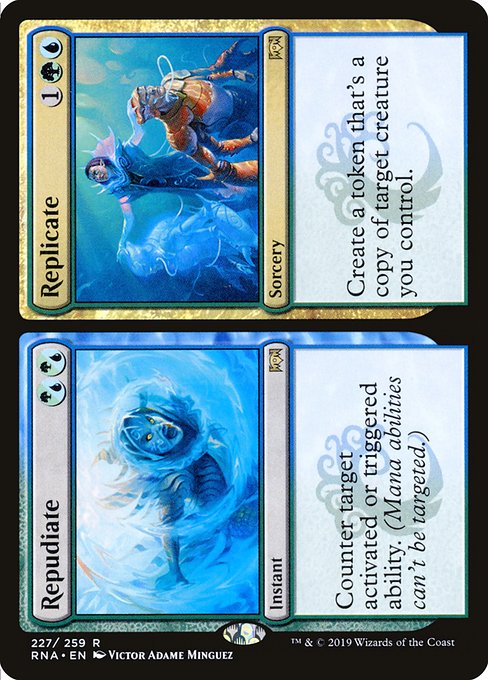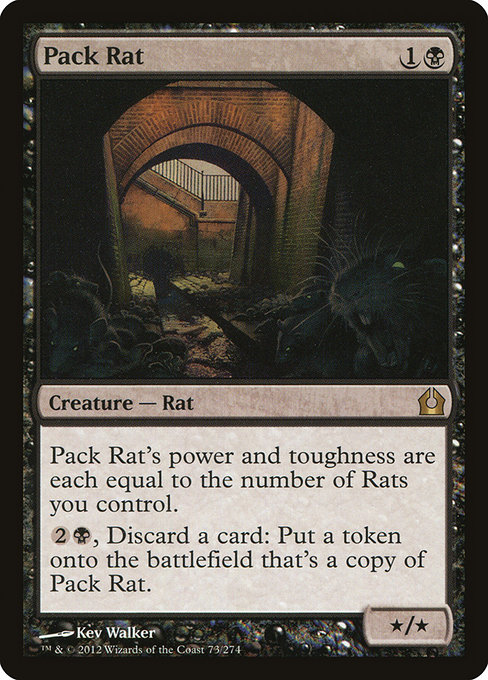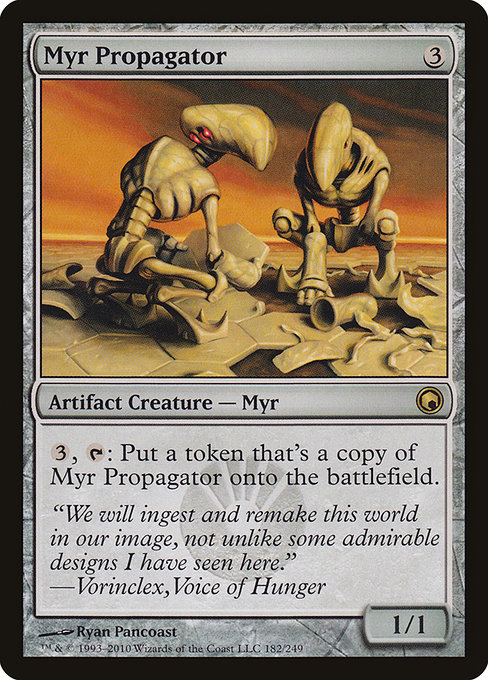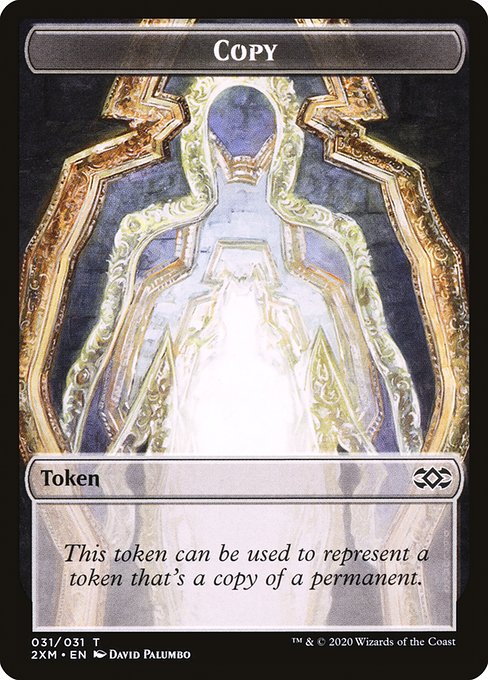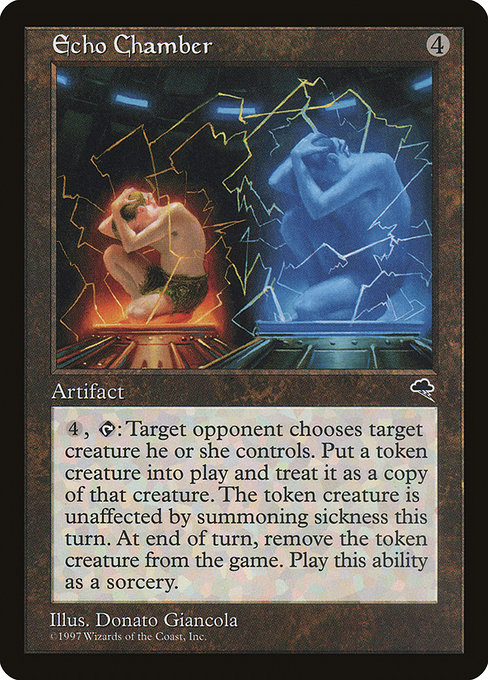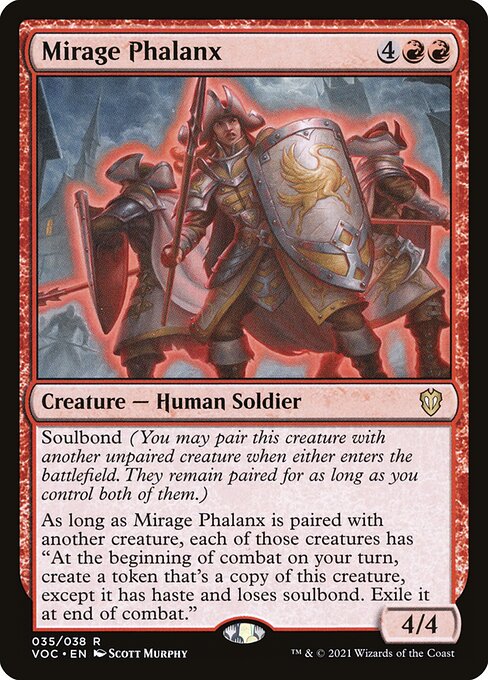Ráksasa envilecedor
Criatura — Demonio felino
Siempre que el Ráksasa envilecedor ataque, pon en el campo de batalla bajo tu control la carta de criatura objetivo del cementerio del jugador defensor.
Replicar . (, exiliar esta carta de tu cementerio: Por cada oponente, crea una ficha que es una copia que ataca a ese oponente este turno, si puede. Ganan la habilidad de prisa. Sacrifícalas al comienzo del próximo paso final. Activa esta habilidad solo como un conjuro.)
Replicar . (, exiliar esta carta de tu cementerio: Por cada oponente, crea una ficha que es una copia que ataca a ese oponente este turno, si puede. Ganan la habilidad de prisa. Sacrifícalas al comienzo del próximo paso final. Activa esta habilidad solo como un conjuro.)
6/6
standard
future
historic
gladiator
pioneer
explorer
modern
legacy
pauper
vintage
penny
commander
brawl
alchemy
paupercommander
duel
oldschool
premodern
Rulings
If you leave the game, all creatures owned by other players that were put onto the battlefield under your control are exiled.
Exiling the card with encore is a cost to activate the ability. Once you announce that you’re activating it, no player may take actions until you’ve finished. They can’t try to remove the card from your graveyard to stop you from paying the cost.
If one of the tokens somehow is under another player’s control as the delayed triggered ability resolves, you can’t sacrifice that token. It remains on the battlefield indefinitely, even if you regain control of it later.
Opponents who have left the game aren’t counted when determining how many tokens to create.
If an effect stops a token from attacking a specific player, that token can attack any player or planeswalker, or not attack at all. If the effect stops the token from attacking a specific player unless a cost is paid, you don’t have to pay that cost unless you want to attack that player.
The tokens copy only what’s on the original card. Effects that modified that creature when it was previously on the battlefield won’t be copied.
Each token must attack the appropriate player if able.
If one of the tokens can’t attack for any reason (such as being tapped), then it doesn’t attack. If there’s a cost associated with having it attack, you aren’t forced to pay that cost, so it doesn’t have to attack in that case either.
If a creature is attacking a planeswalker, that planeswalker’s controller is the defending player.
The creatures put onto the battlefield by the triggered ability can’t attack that combat, even if they have haste.
Exiling the card with encore is a cost to activate the ability. Once you announce that you’re activating it, no player may take actions until you’ve finished. They can’t try to remove the card from your graveyard to stop you from paying the cost.
If one of the tokens somehow is under another player’s control as the delayed triggered ability resolves, you can’t sacrifice that token. It remains on the battlefield indefinitely, even if you regain control of it later.
Opponents who have left the game aren’t counted when determining how many tokens to create.
If an effect stops a token from attacking a specific player, that token can attack any player or planeswalker, or not attack at all. If the effect stops the token from attacking a specific player unless a cost is paid, you don’t have to pay that cost unless you want to attack that player.
The tokens copy only what’s on the original card. Effects that modified that creature when it was previously on the battlefield won’t be copied.
Each token must attack the appropriate player if able.
If one of the tokens can’t attack for any reason (such as being tapped), then it doesn’t attack. If there’s a cost associated with having it attack, you aren’t forced to pay that cost, so it doesn’t have to attack in that case either.
If a creature is attacking a planeswalker, that planeswalker’s controller is the defending player.
The creatures put onto the battlefield by the triggered ability can’t attack that combat, even if they have haste.
Rulings
If you leave the game, all creatures owned by other players that were put onto the battlefield under your control are exiled.
Exiling the card with encore is a cost to activate the ability. Once you announce that you’re activating it, no player may take actions until you’ve finished. They can’t try to remove the card from your graveyard to stop you from paying the cost.
If one of the tokens somehow is under another player’s control as the delayed triggered ability resolves, you can’t sacrifice that token. It remains on the battlefield indefinitely, even if you regain control of it later.
Opponents who have left the game aren’t counted when determining how many tokens to create.
If an effect stops a token from attacking a specific player, that token can attack any player or planeswalker, or not attack at all. If the effect stops the token from attacking a specific player unless a cost is paid, you don’t have to pay that cost unless you want to attack that player.
The tokens copy only what’s on the original card. Effects that modified that creature when it was previously on the battlefield won’t be copied.
Each token must attack the appropriate player if able.
If one of the tokens can’t attack for any reason (such as being tapped), then it doesn’t attack. If there’s a cost associated with having it attack, you aren’t forced to pay that cost, so it doesn’t have to attack in that case either.
If a creature is attacking a planeswalker, that planeswalker’s controller is the defending player.
The creatures put onto the battlefield by the triggered ability can’t attack that combat, even if they have haste.
Exiling the card with encore is a cost to activate the ability. Once you announce that you’re activating it, no player may take actions until you’ve finished. They can’t try to remove the card from your graveyard to stop you from paying the cost.
If one of the tokens somehow is under another player’s control as the delayed triggered ability resolves, you can’t sacrifice that token. It remains on the battlefield indefinitely, even if you regain control of it later.
Opponents who have left the game aren’t counted when determining how many tokens to create.
If an effect stops a token from attacking a specific player, that token can attack any player or planeswalker, or not attack at all. If the effect stops the token from attacking a specific player unless a cost is paid, you don’t have to pay that cost unless you want to attack that player.
The tokens copy only what’s on the original card. Effects that modified that creature when it was previously on the battlefield won’t be copied.
Each token must attack the appropriate player if able.
If one of the tokens can’t attack for any reason (such as being tapped), then it doesn’t attack. If there’s a cost associated with having it attack, you aren’t forced to pay that cost, so it doesn’t have to attack in that case either.
If a creature is attacking a planeswalker, that planeswalker’s controller is the defending player.
The creatures put onto the battlefield by the triggered ability can’t attack that combat, even if they have haste.
Your collection? Your decks?
Want to manage your collection and/or create decks?
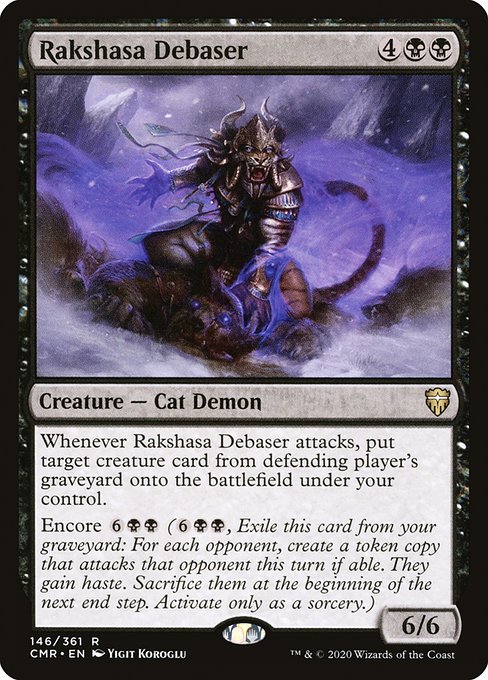

 0
0
 0.44€
0.44€
